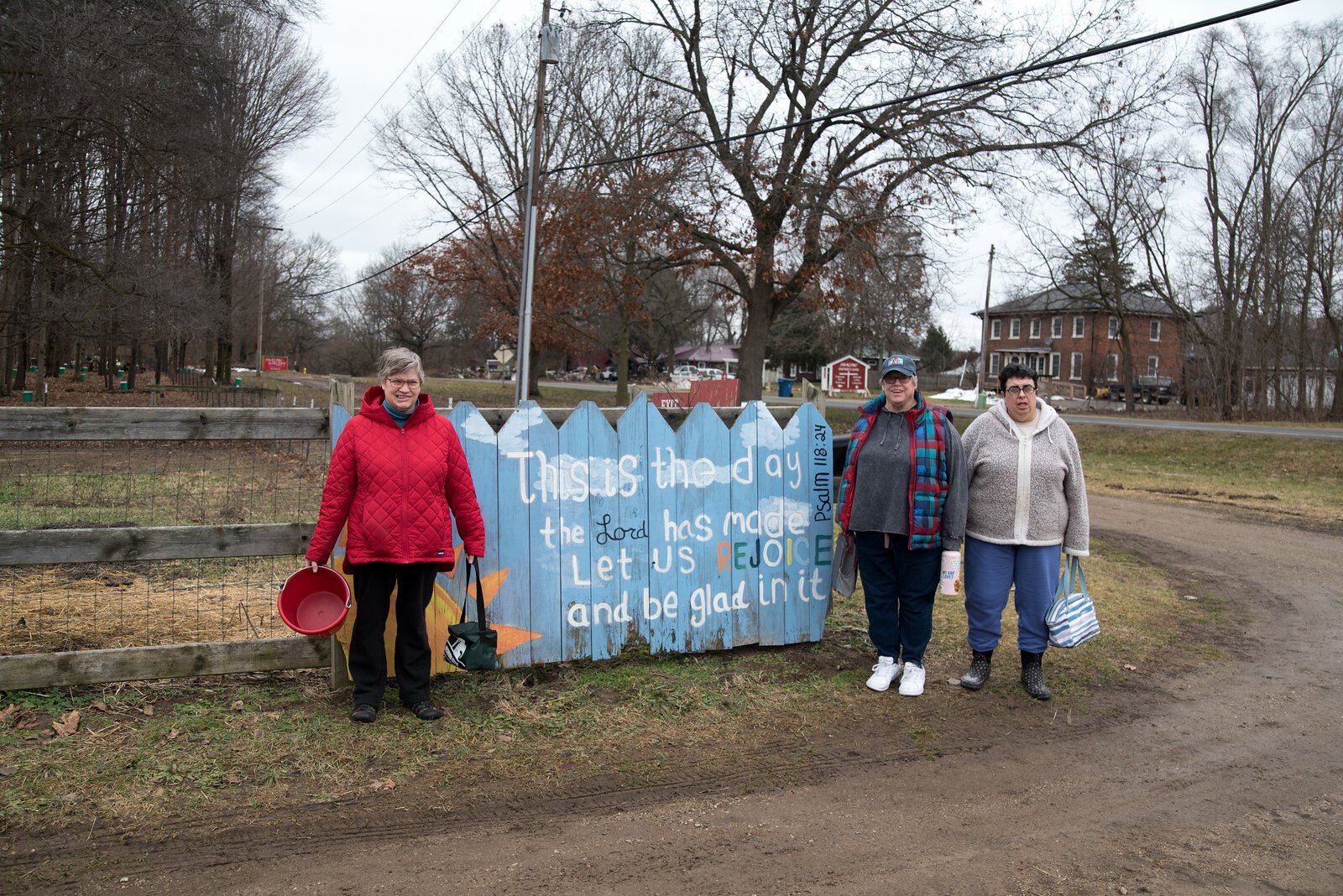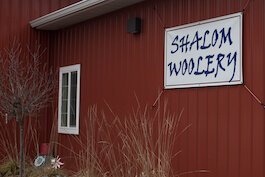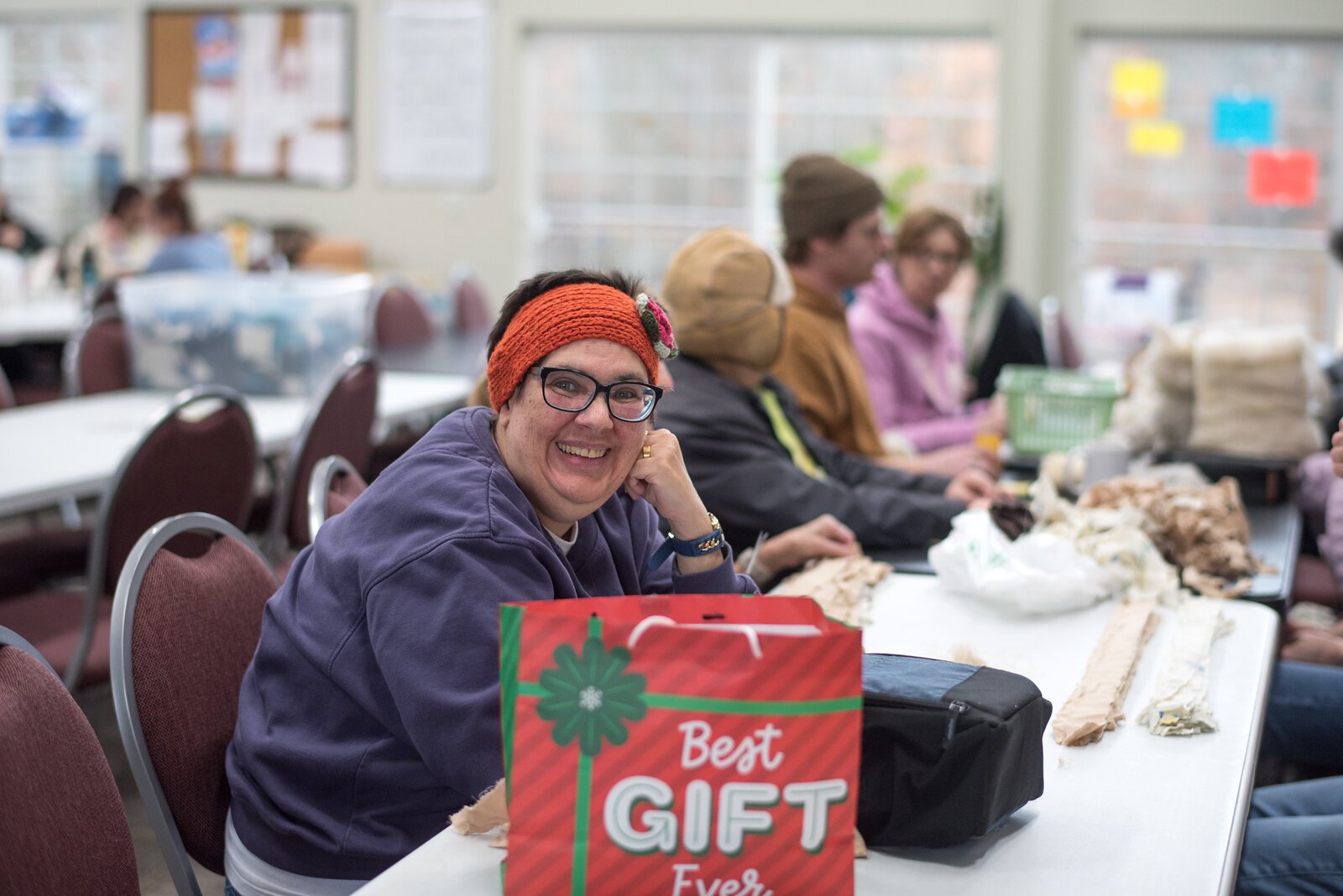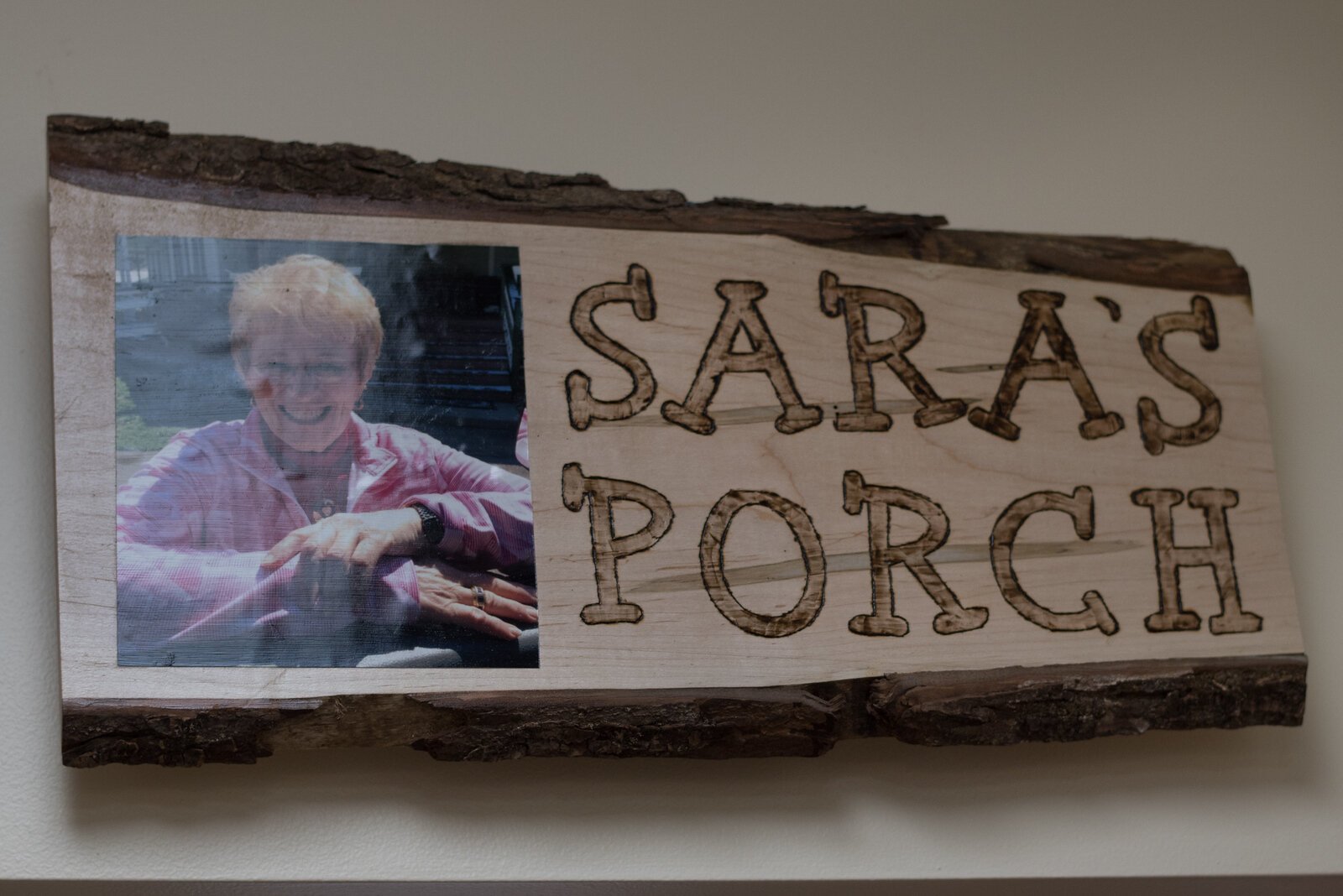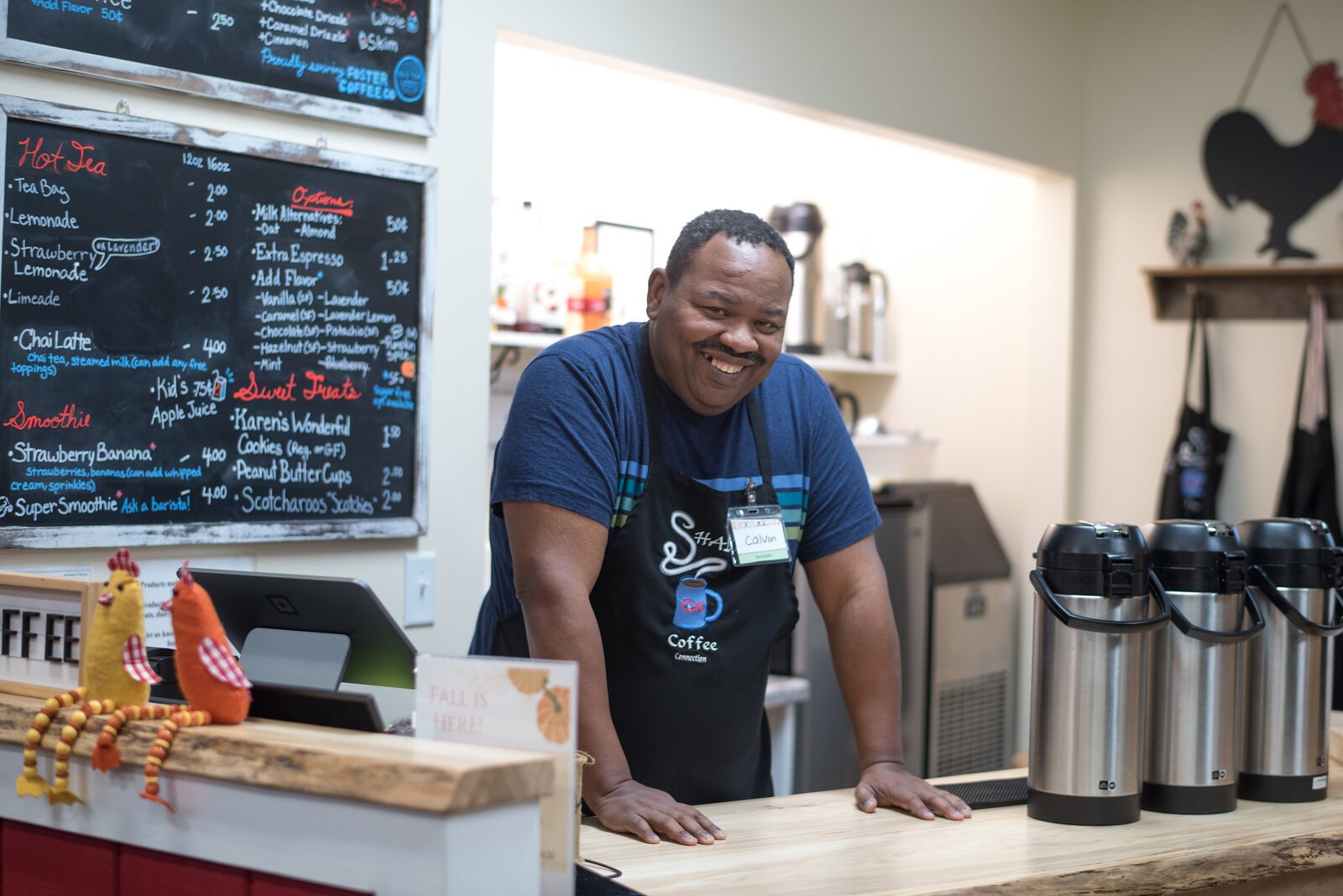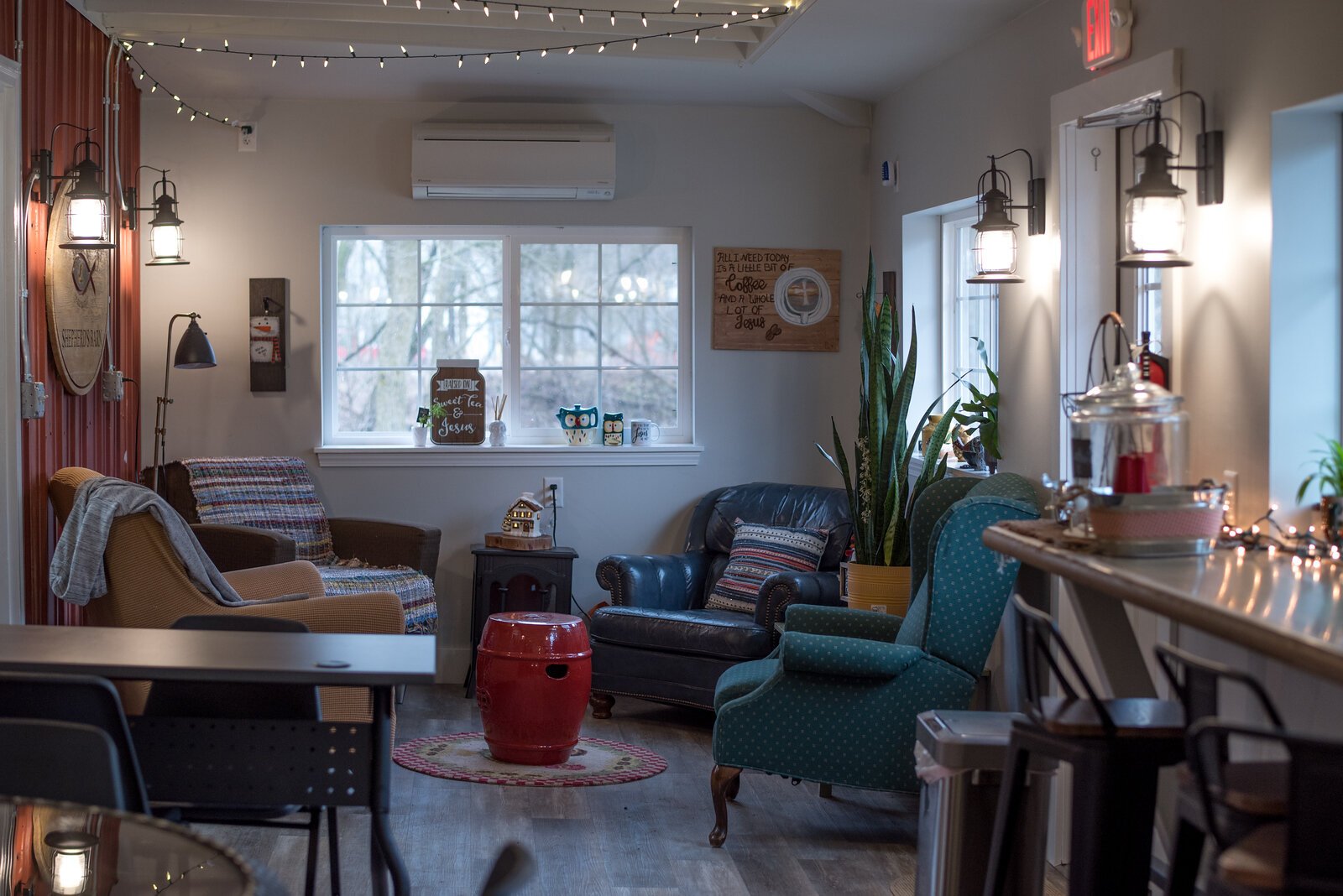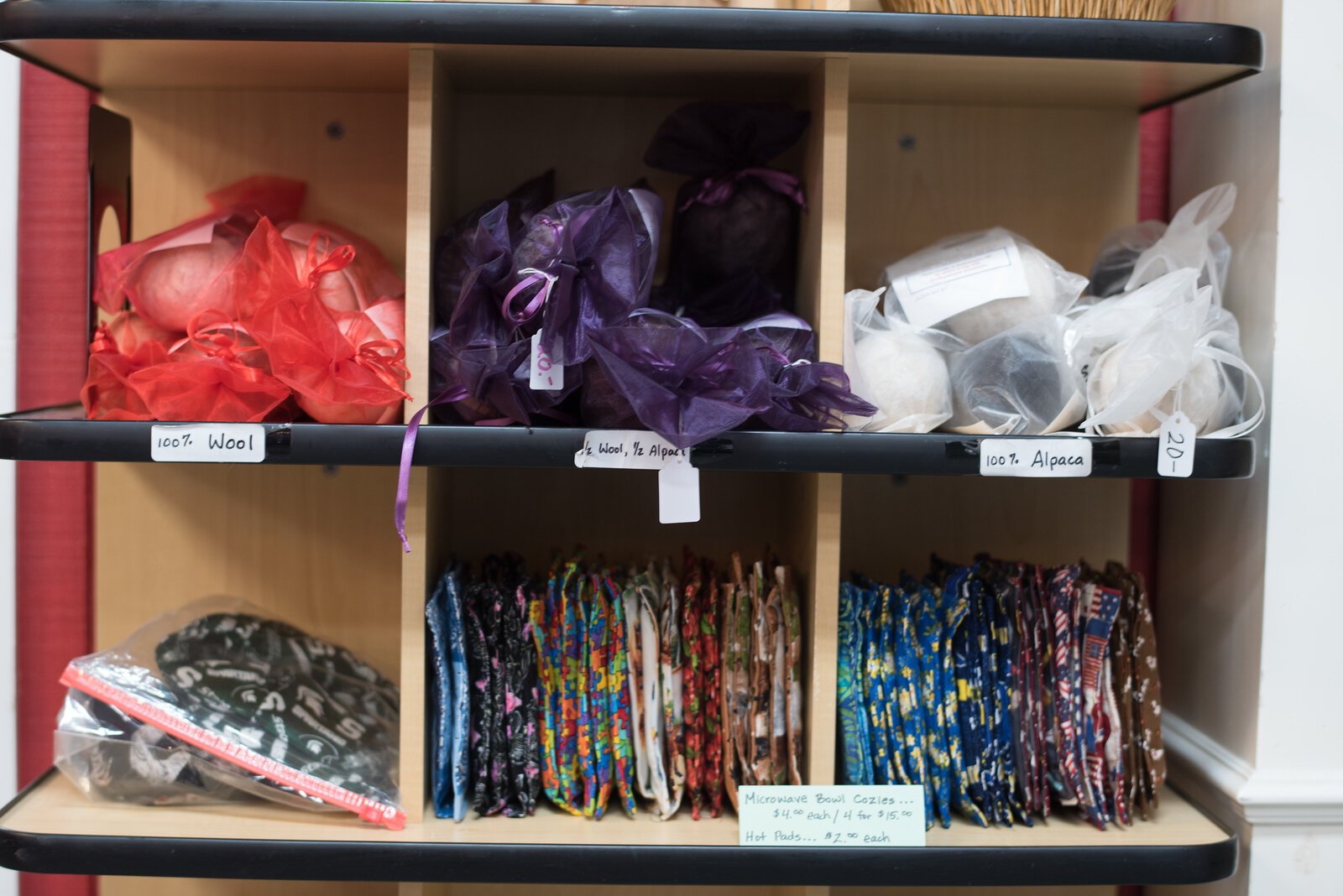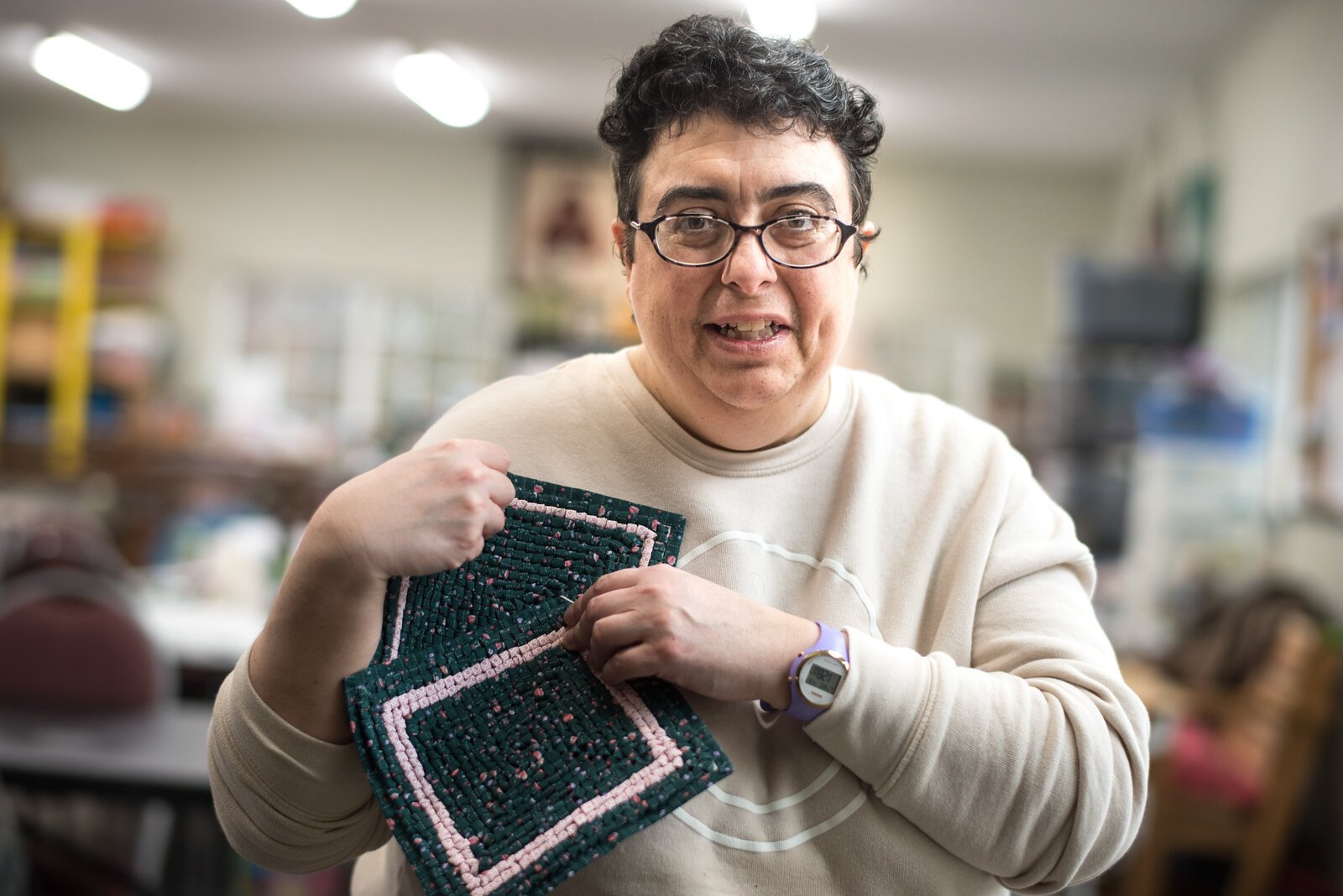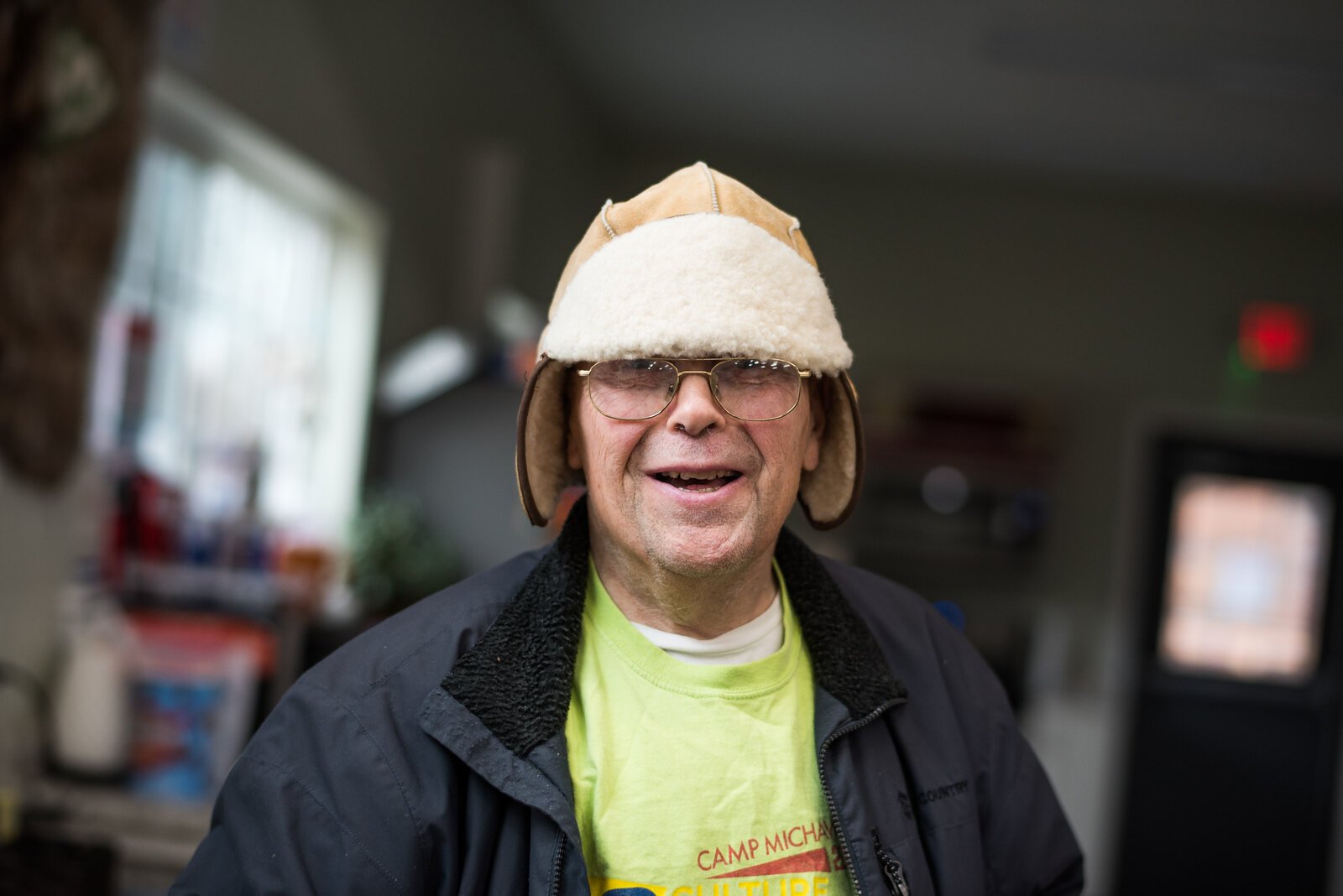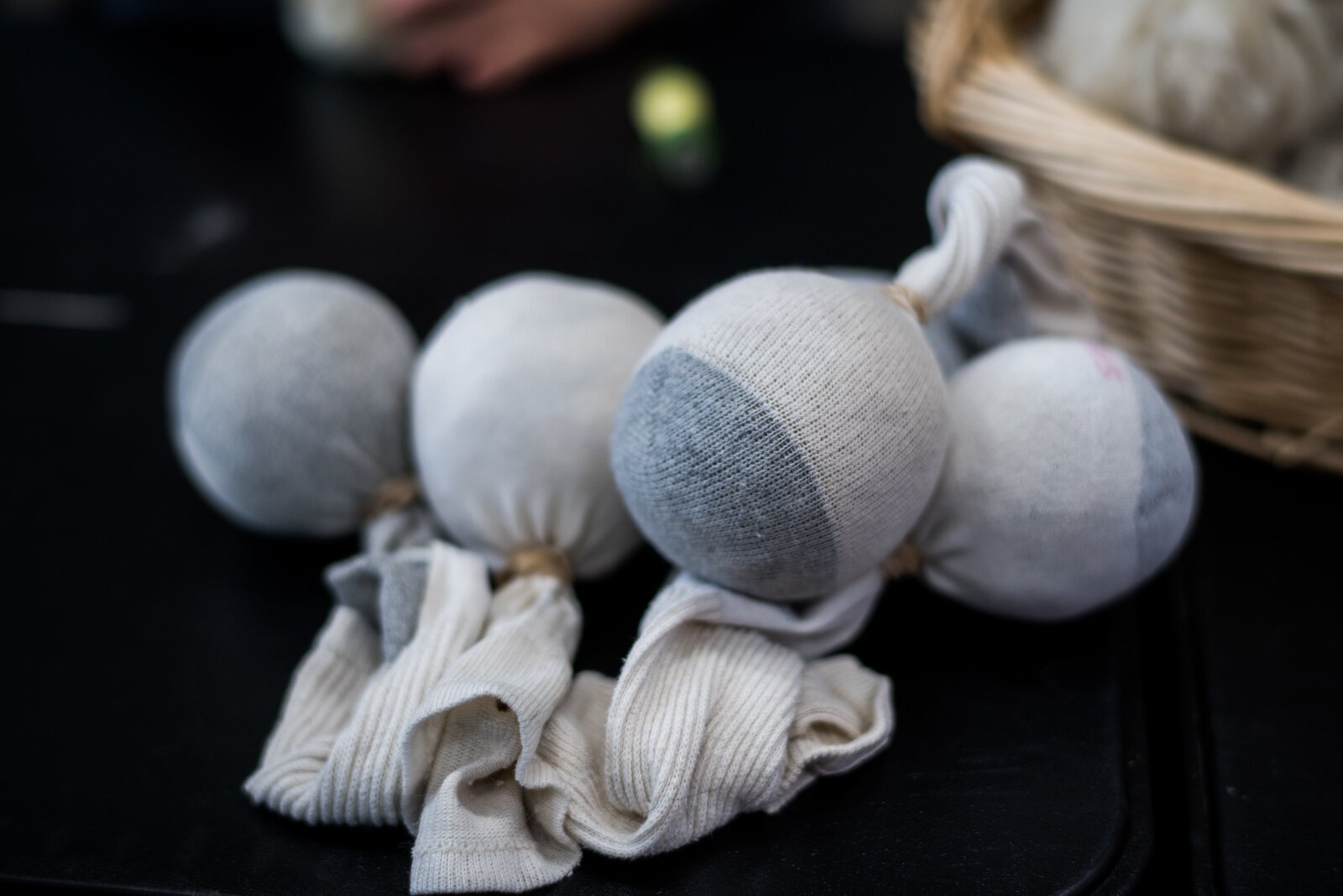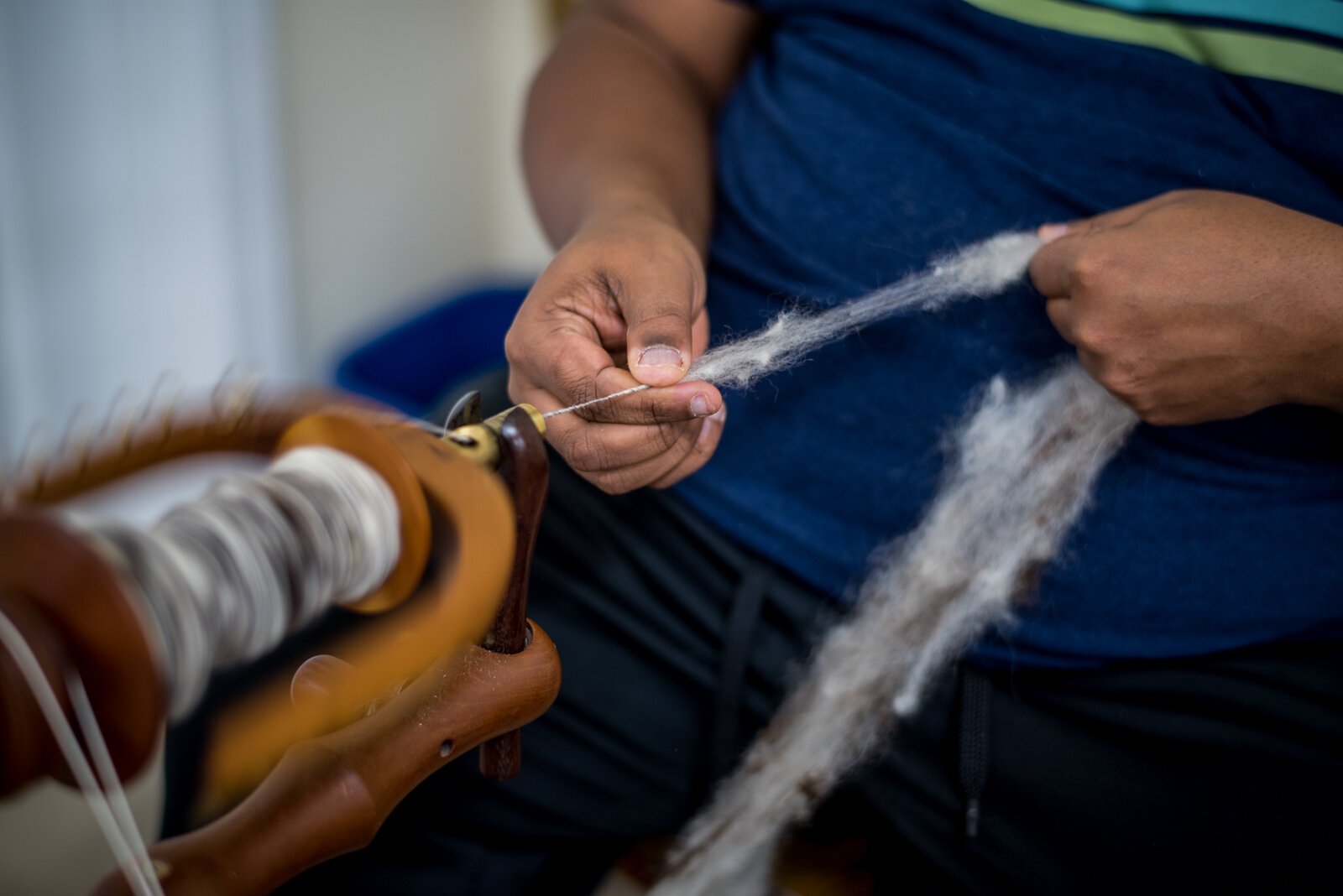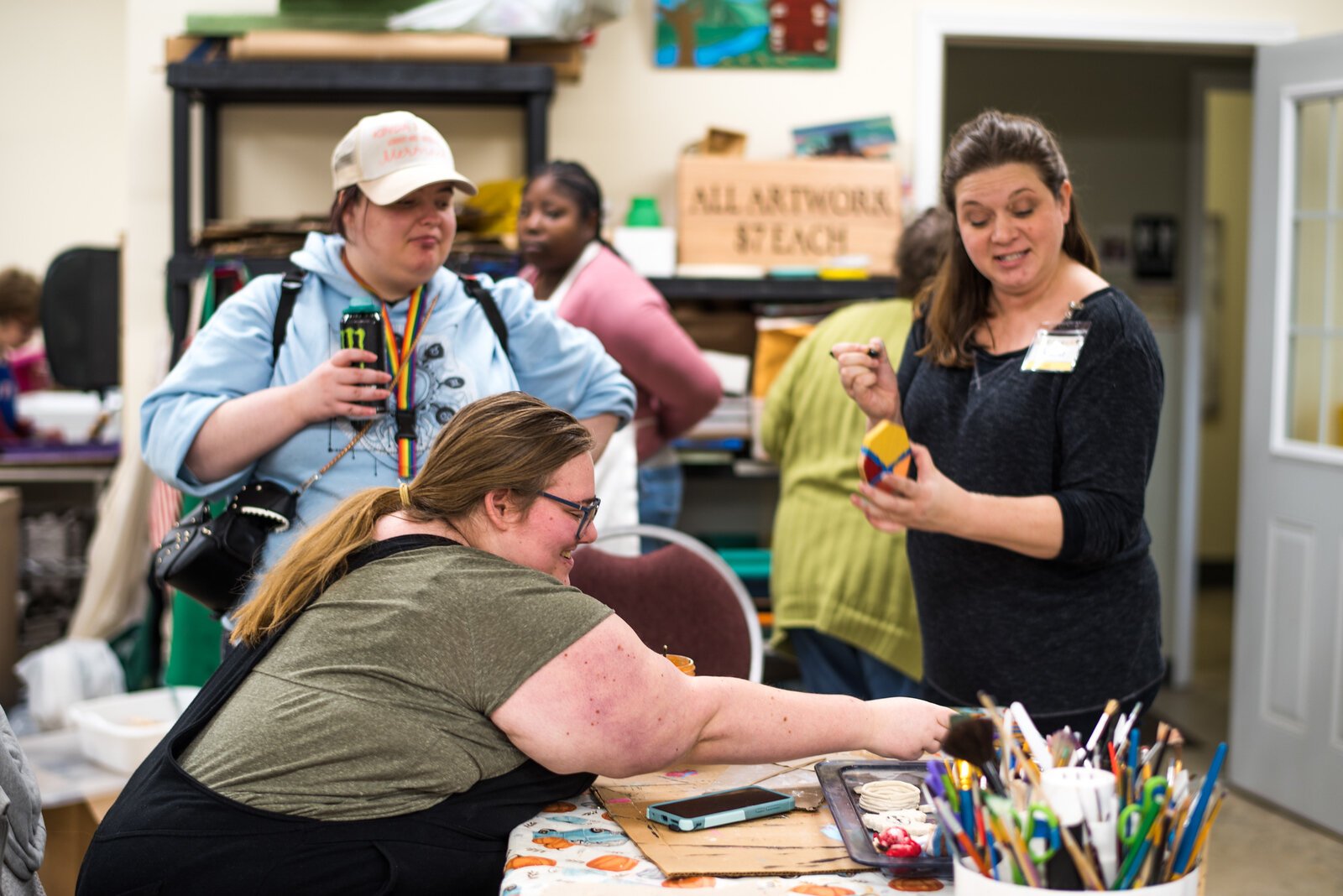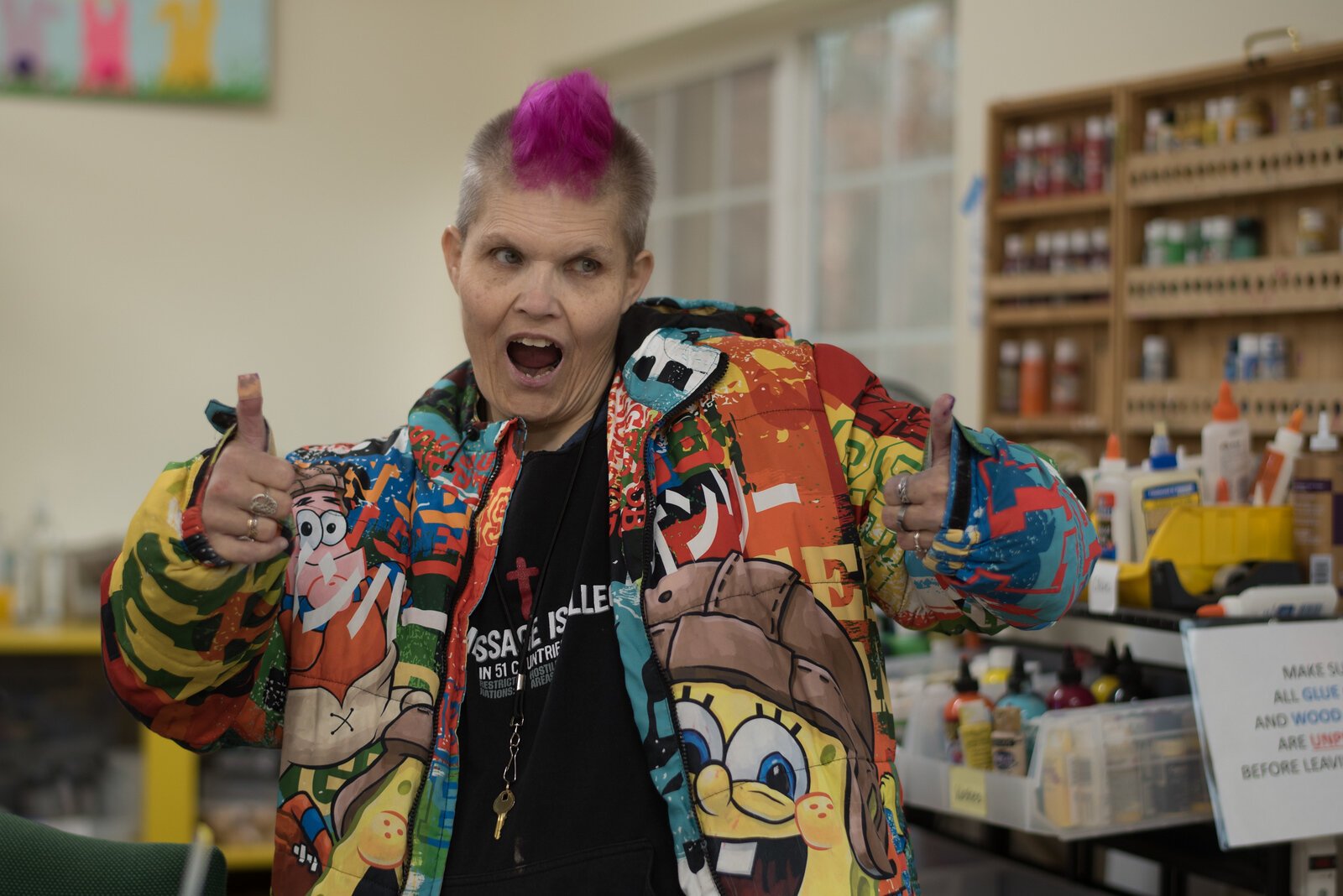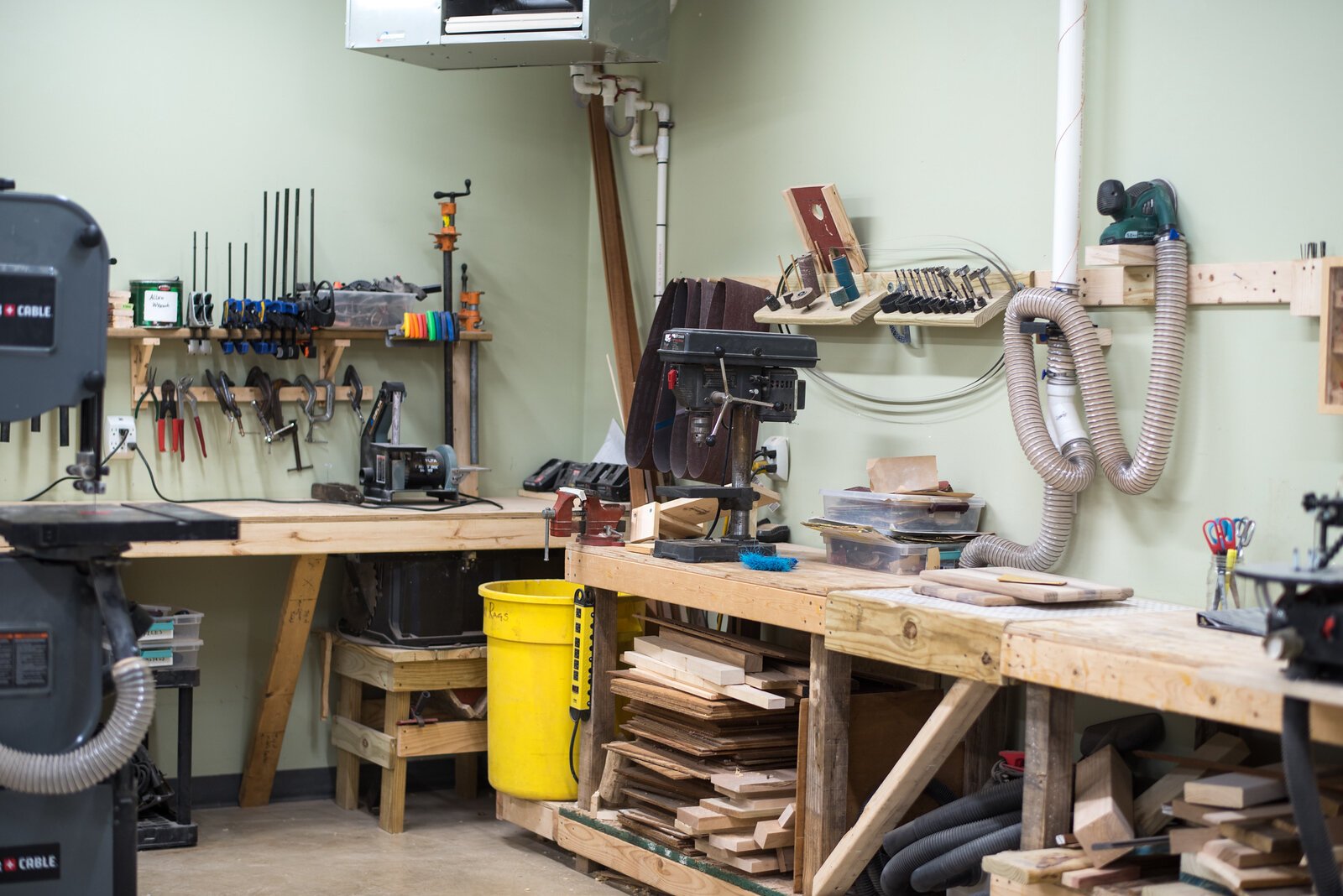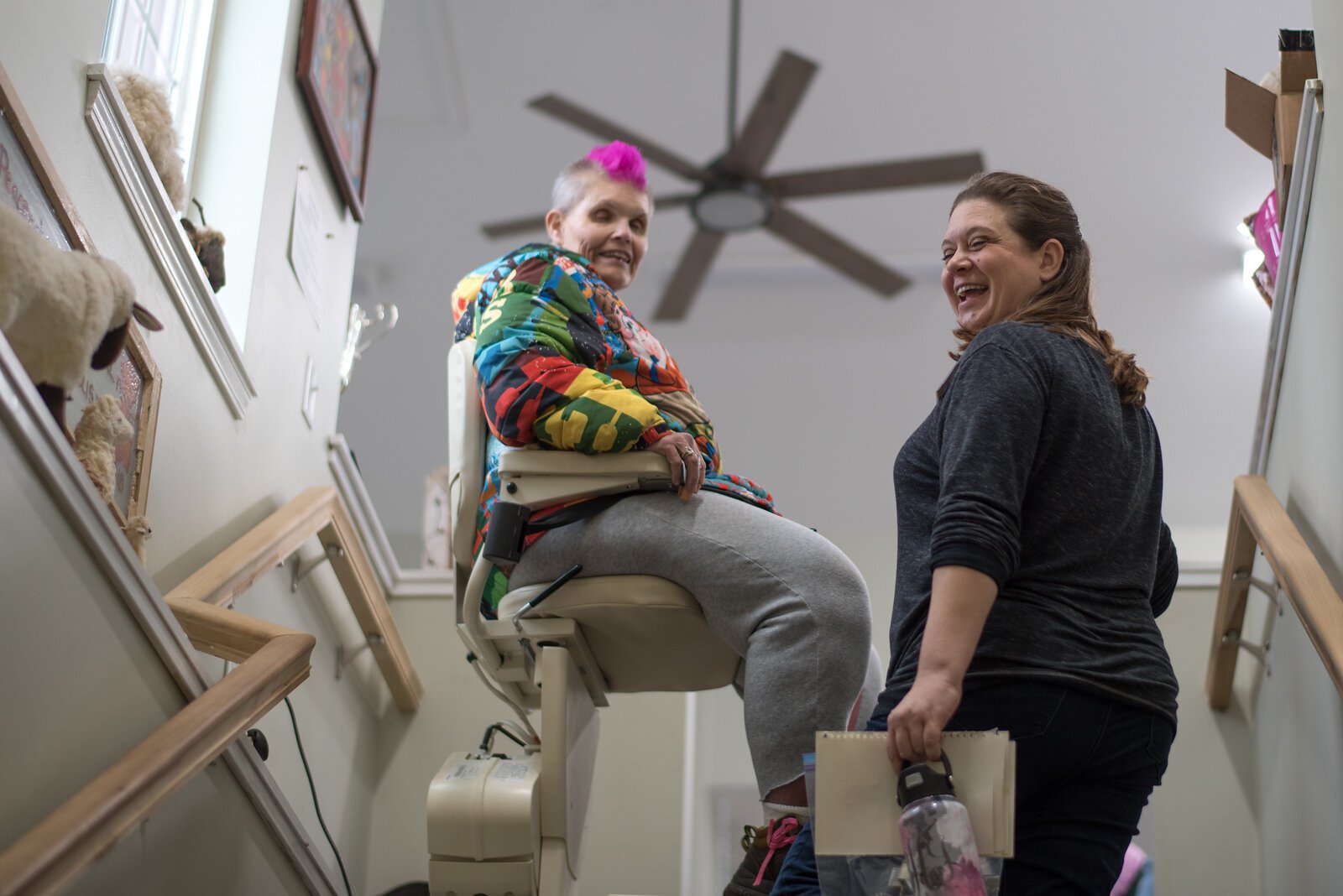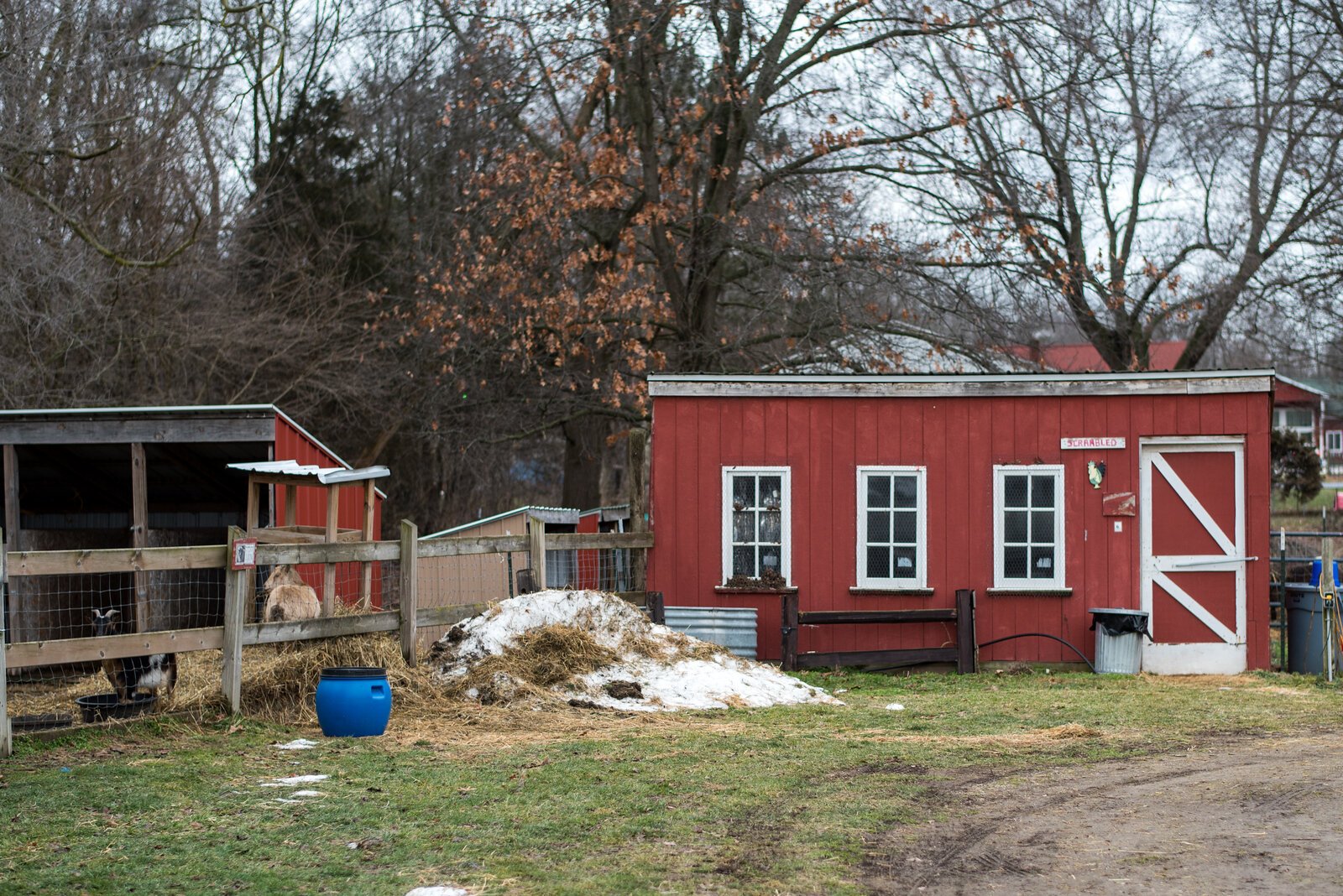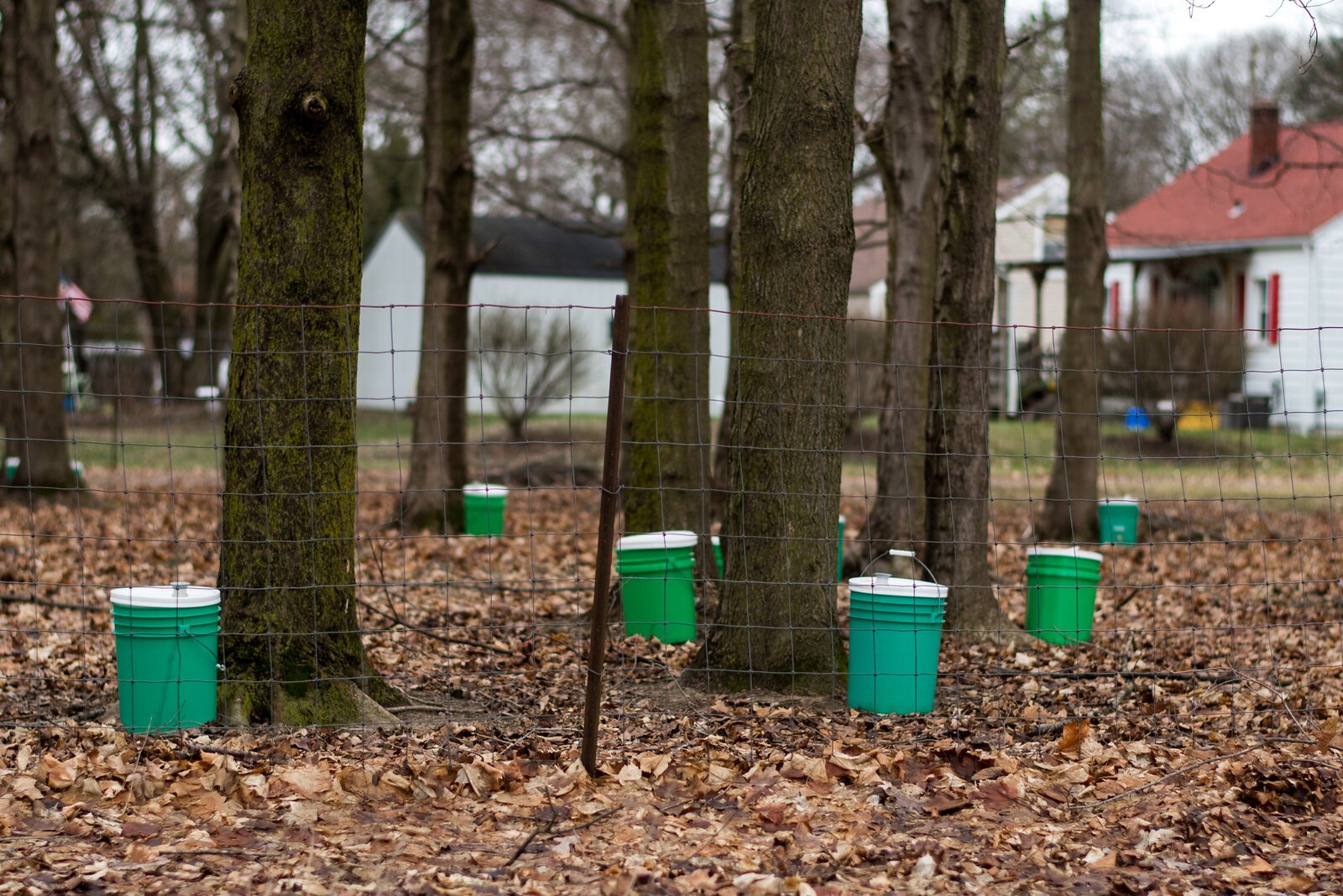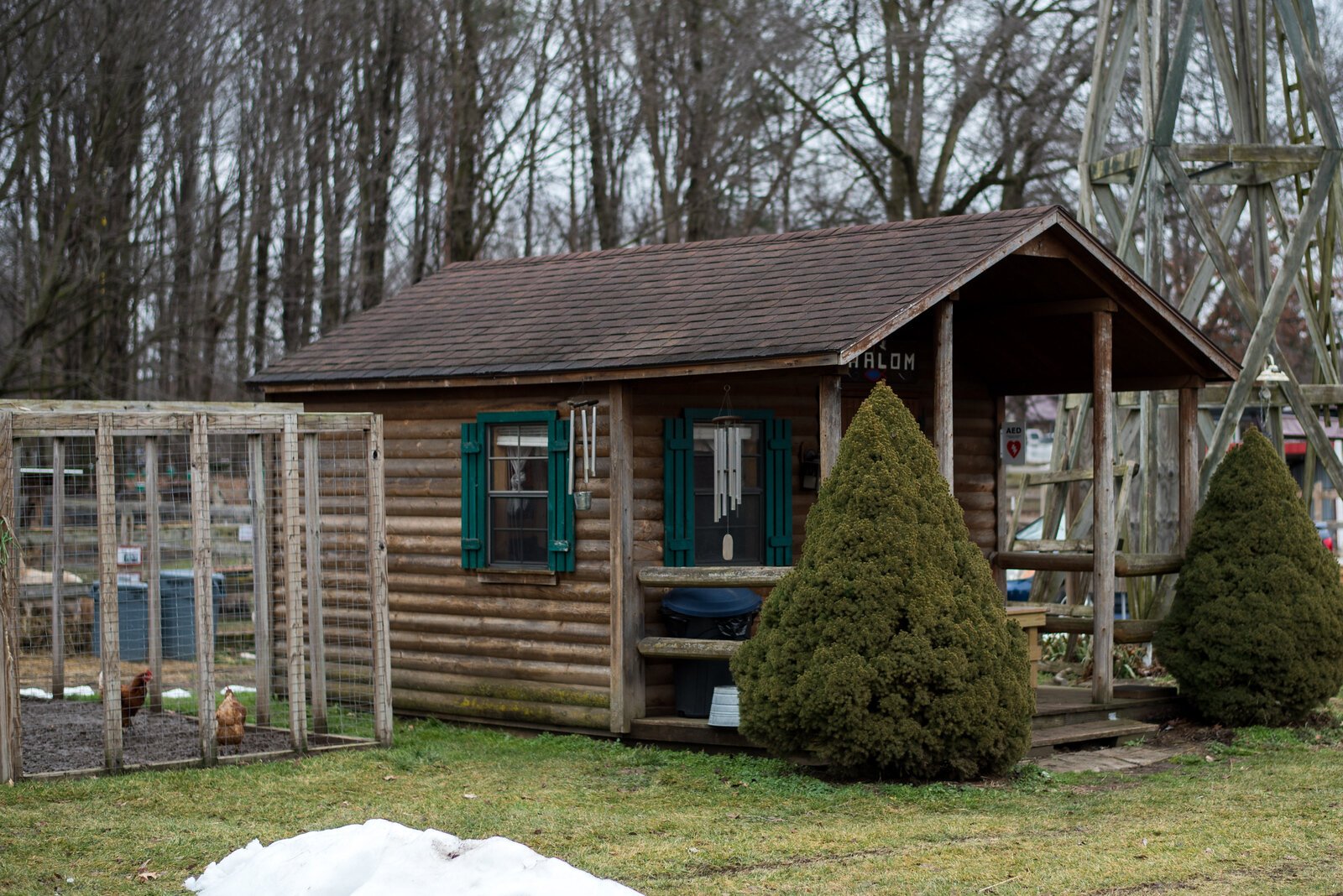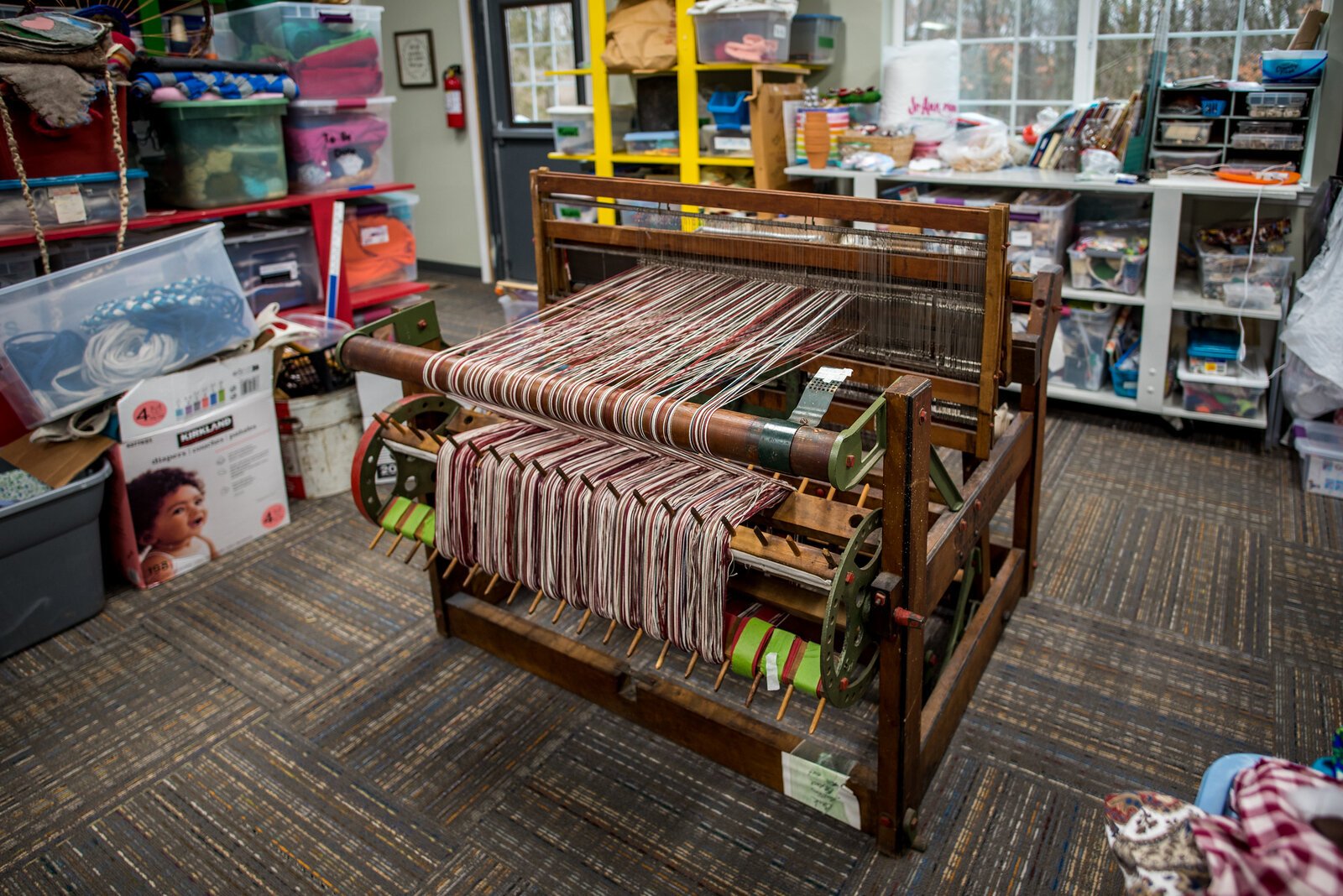Editor’s Note: This story is part of our Faith in Action series of stories exploring faith-based and faith-inspired works, the people accomplishing them, and the connections with the community they are creating. The series is supported by the Fetzer Institute.
PARCHMENT, MI — It is a clear winter day with a few spare snowflakes fluttering in a lazy dance through the air.
Entering the bright red building trimmed in white in early December to see more than thirty adults busily working on a variety of crafts, one might easily mistake SHALOM Woolery as Santa’s workshop. The chatter and laughter add to the atmosphere.
These are not, however, elves, but adults with a variety of developmental disabilities, working to enjoy a life of supported independence. SHALOM, a non-profit organization founded in 1990, is an acronym for Self Help Alternative Living Opportunities of Michigan. It is also a Hebrew word meaning peace, harmony, wholeness, completeness, prosperity, welfare, and tranquility. All apply.
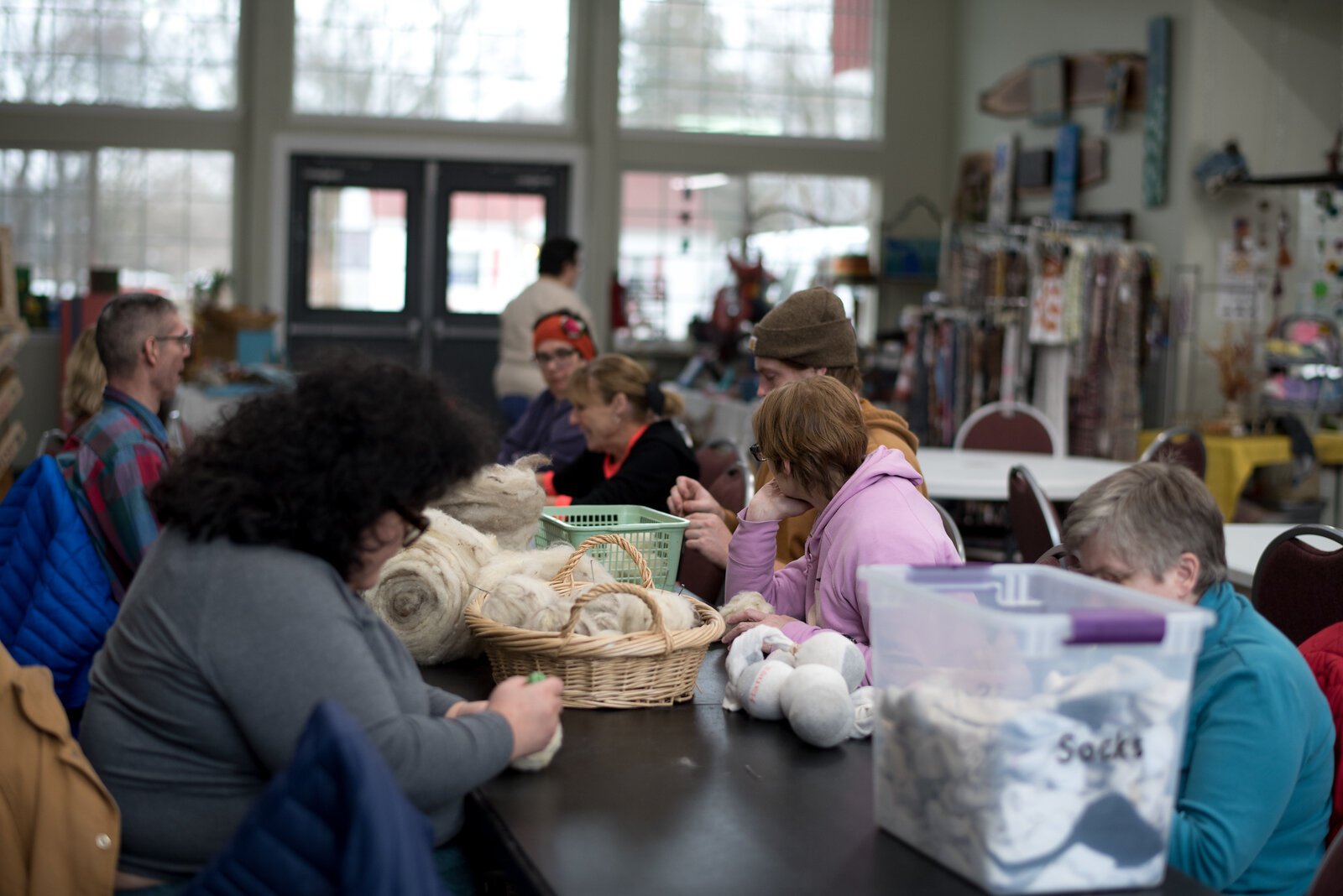
The main headquarters, which includes a woolery, coffee shop, barn full of animals, thrift store, sugar shack, and housing, is located at 3191 Van Buren St. in Parchment. Few might be aware that such an idyllic farm and visiting spot lies so close to downtown Kalamazoo.
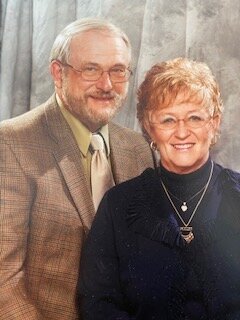
Julie Stevens, daughter of SHALOM founders Sara and Glen Collison, shares their story. Her father Glen was a farmer who also owned a grocery store, she says. Her mother Sara was a psychiatric nurse and adjunct faculty, teaching CPR at Kellogg Community College. Their lives were led by Christian principles, and every step they took was in the following of their faith, guided by prayer.
“My mom was Jewish, but she embraced the Christian faith when she married my father,” Stevens says. “That got her disowned by her parents. But she was attracted to my father because, with his beard, he looked Jewish, and he was a kind and gracious man who loved lifelong learning. I grew up with my family observing Jewish holidays such as Passover, too, and he was okay with that.”
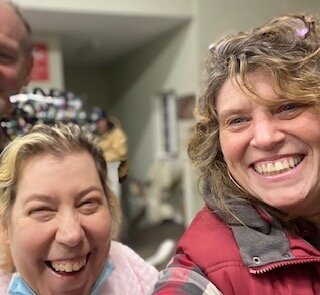
Undaunted by any family issues, the Collisons lived a life of service to others, and in 1978, that meant taking on leadership roles at the Ottawa Community Haven as acting, then permanent directors. The Community Haven provided relief to the poor, distressed, and indigent individuals and families.
“Although back then they called it the Poor Farm,” Stevens says. “It was run by Ottawa County and had about 60 residents at that time. Seemed like the County wanted to see a profit, but Dad did it for the people, not for the money. My parents made it seem like family, like a community.”
A place of possibilities
Creating a sense of family for the marginalized was a niche that the Collisons filled with faith and lots of heart. They had found their calling. When Sara Collison’s parents passed on, she inherited what they then called Riverview Acres, 180 acres that bordered the Kalamazoo River in Parchment. The Collisons prayed about the inheritance, seeking guidance in how to use the land, and the buildings — some of which were condemned — were on it.
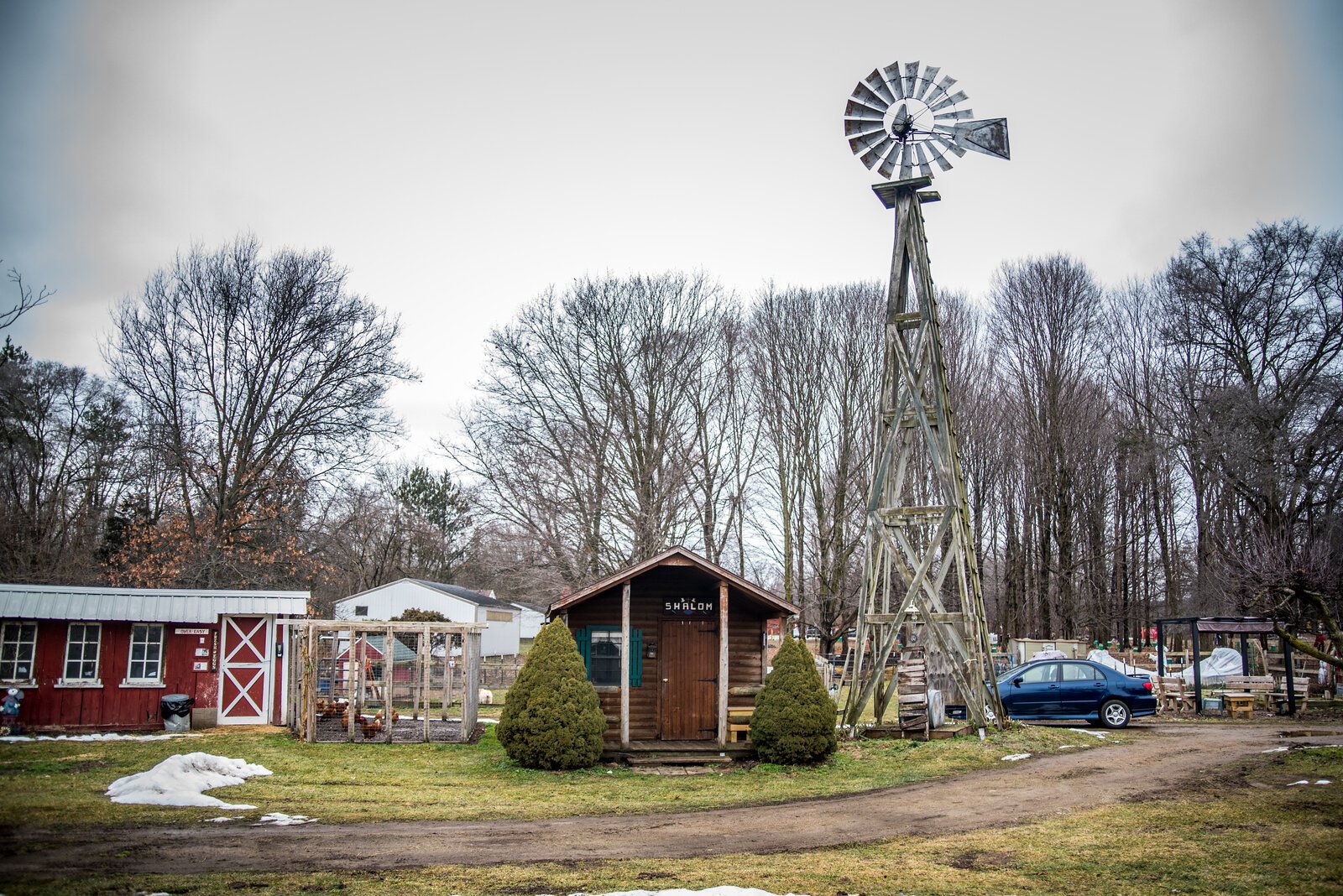
“They felt that every step in their lives led to the next step,” Stevens says. “They prayed about how to best use Riverview Acres to help others. Three months after they got it, they had gotten contractors, gutted the buildings, painted everything, and restored it all. The farmhouse that had been condemned became our home that we then shared with 12 adult residents.”
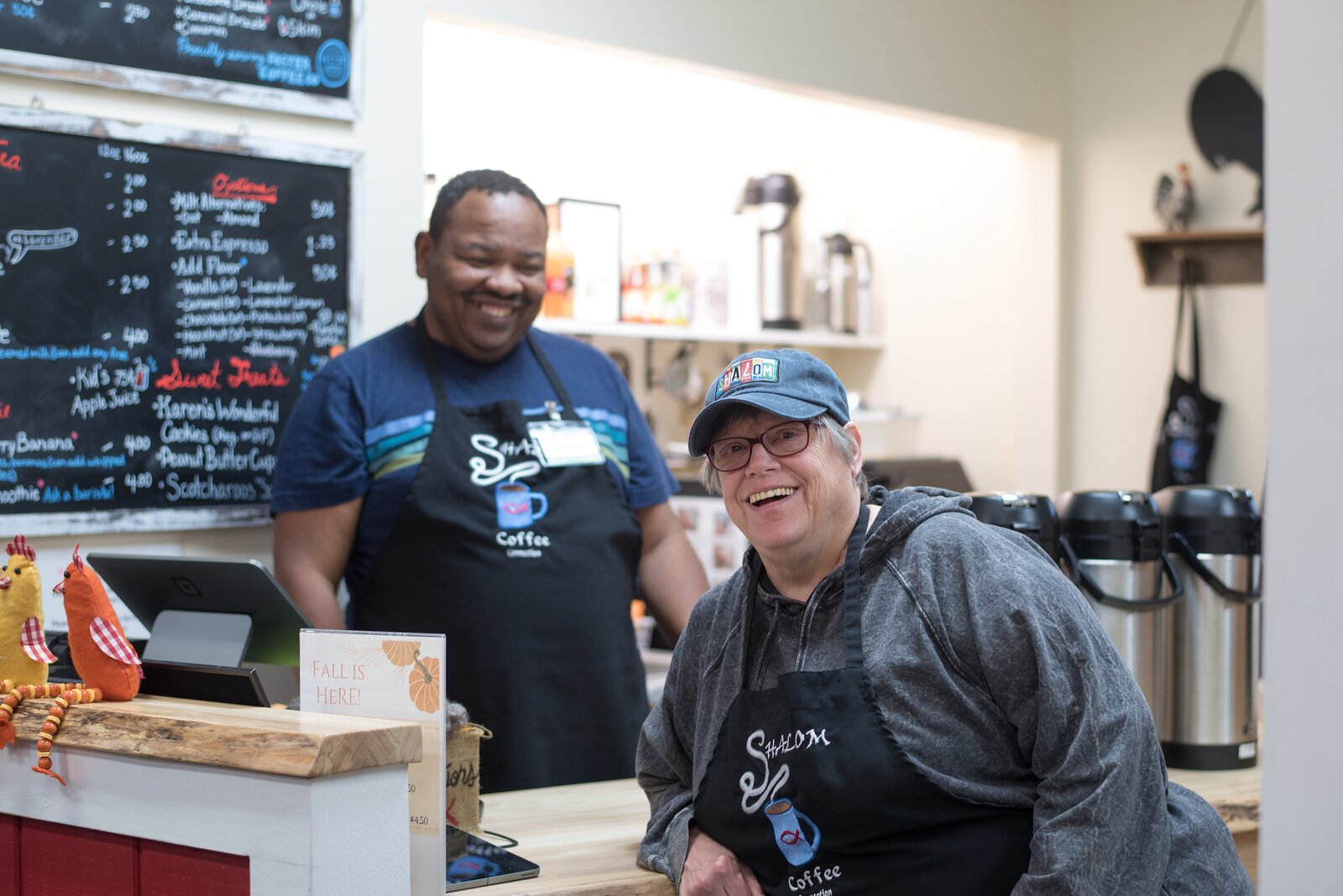
Riverview Acres had been transformed into the SHALOM Network, which would eventually include The Shepherd’s Barn, Connection Depot Thrift Store, SHALOM Woolery, and Farm, and now also eight homes: the Homestead, Three Pines, Homestead South, Polk, Growing Grace, Groveland, Barnabus, and Hope Grove. Each faith-based home is managed by Christian caregivers.
The various homes house around 40 residents, along with their care providers and their families. Three of the homes are licensed AFC (Adult Foster Care) homes and five are self-determined, supported living homes. A more recent addition, opening in March 2023, is the SHALOM Coffee Connection, the coffee shop open to residents and the public. Participants and volunteers run the coffee shop, allowing residents to learn yet another skill as baristas.
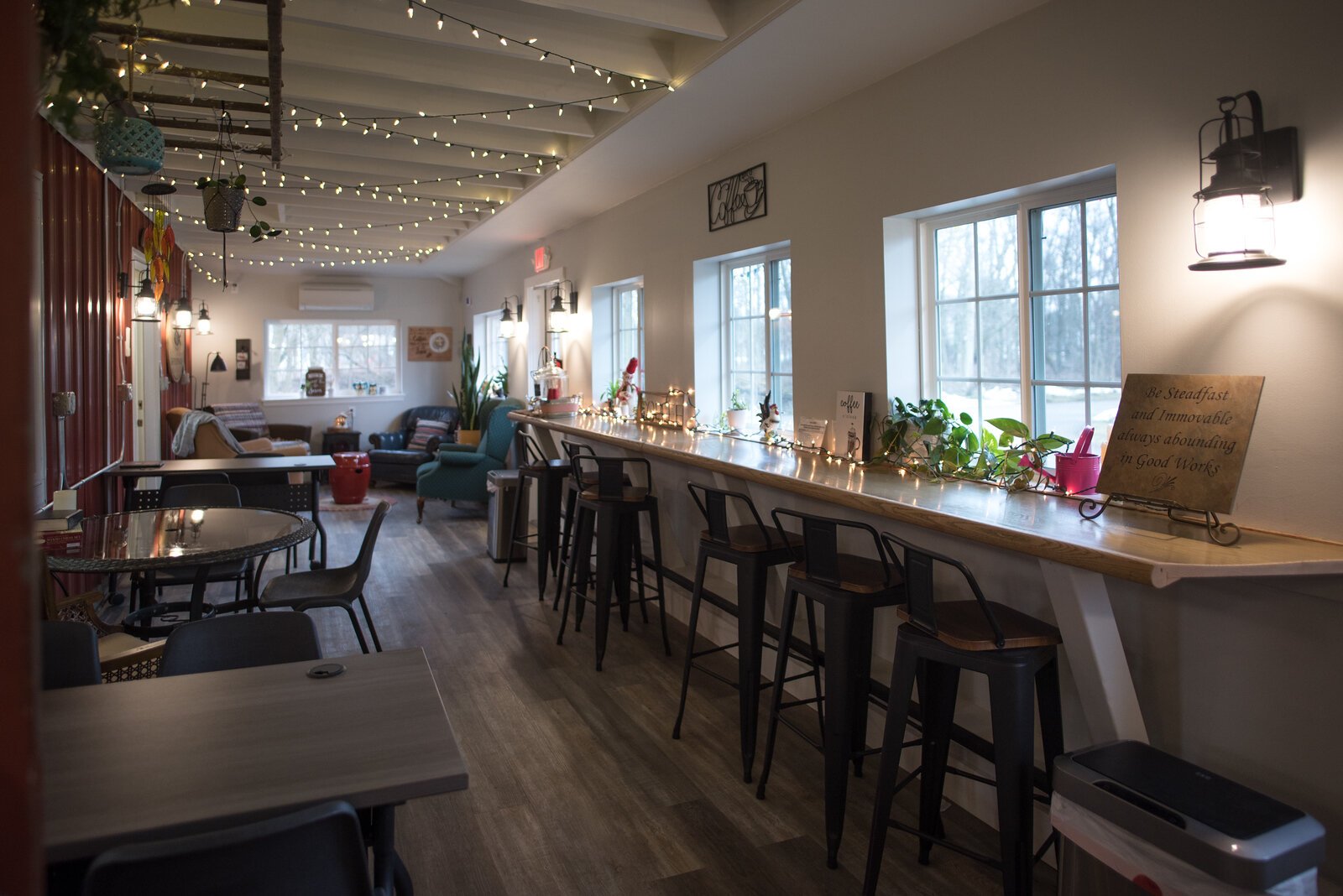
“My mother also kept working as a nurse for the Veterans Hospital to bring in income,” Stevens says. “My dad stayed at home and was a cook, homemaker, gardener, farmer, and candlestick maker. My mom needed surgery at one point and while she was healing, she made SHALOM into a nonprofit, and a board of directors was formed to oversee it. My brother helped for a time, too, and we opened a men’s home for supported living.”
The Shepherd’s Barn is home to the Connection Depot Thrift Store and the SHALOM Coffee Connection. The SHALOM Woolery houses the activity center and main office. The activity center is used for all kinds of Network gatherings and celebrations. The SHALOM Woolery has included Kalamazoo Regional Educational Service Agency (KRESA) students living with an autism spectrum disorder. SHALOM has also collaborated with interns from the Western Michigan University Occupational Therapy Department and the Woods Edge Learning Center (KRESA) so that students can do some of their training at SHALOM facilities.
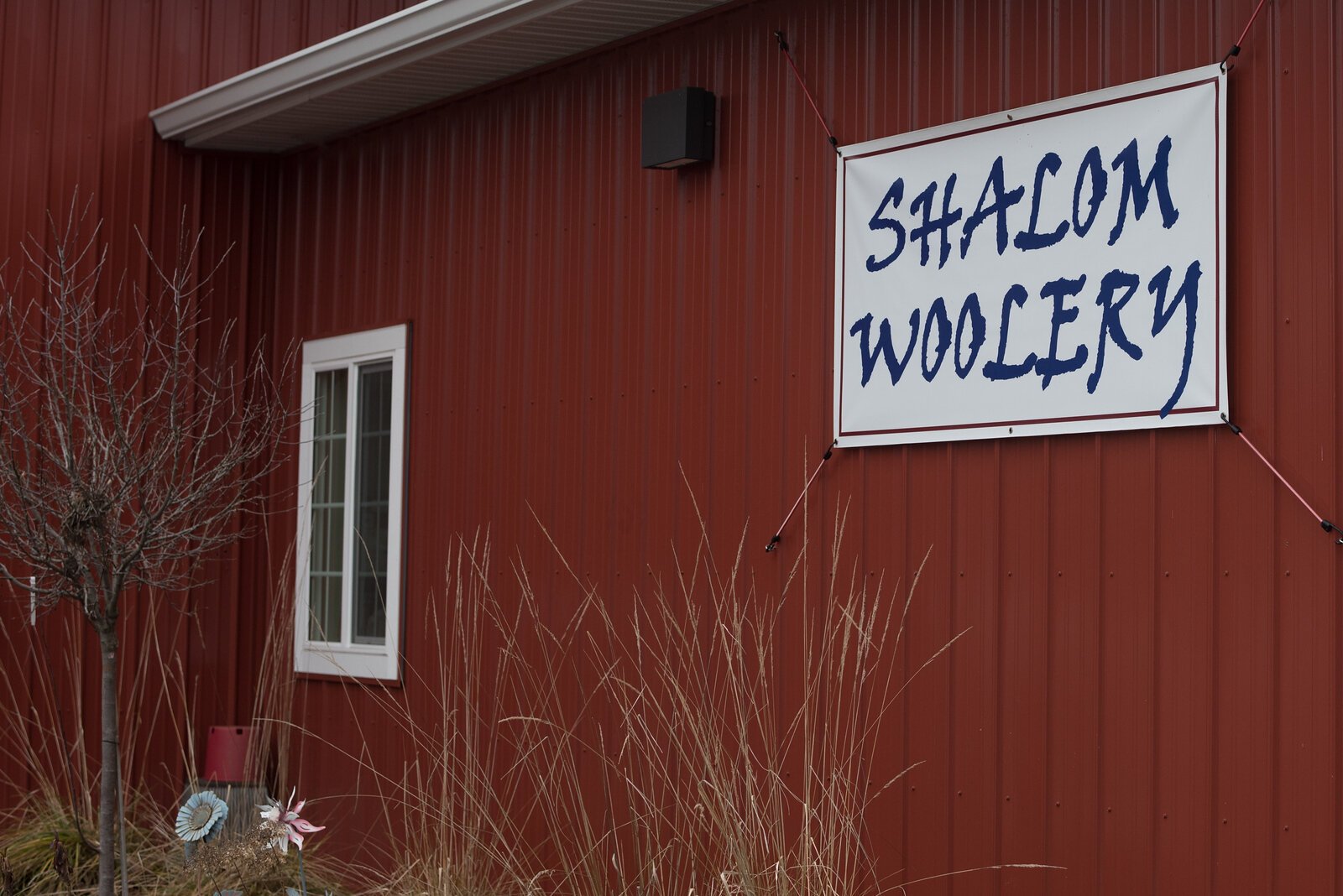
“During COVID is when we built this new SHALOM Woolery building,” Stevens adds. “It’s an activity building where our residents can come for a meaningful and purposeful way to spend their day. We also have looms for the wool. A lot of the work people do here is with wool and alpaca fiber, and much of what they create is sold here and in the thrift shop.
The wool comes directly from the SHALOM Farm, a busy place with animal care, gardening, and growing and gathering fruit, much of which is completed by residents and volunteers. In early spring, they also take on tapping and making maple syrup in a sugar shack. Animals on the farm include sheep, goats, ducks, chickens, alpaca, and rabbits.
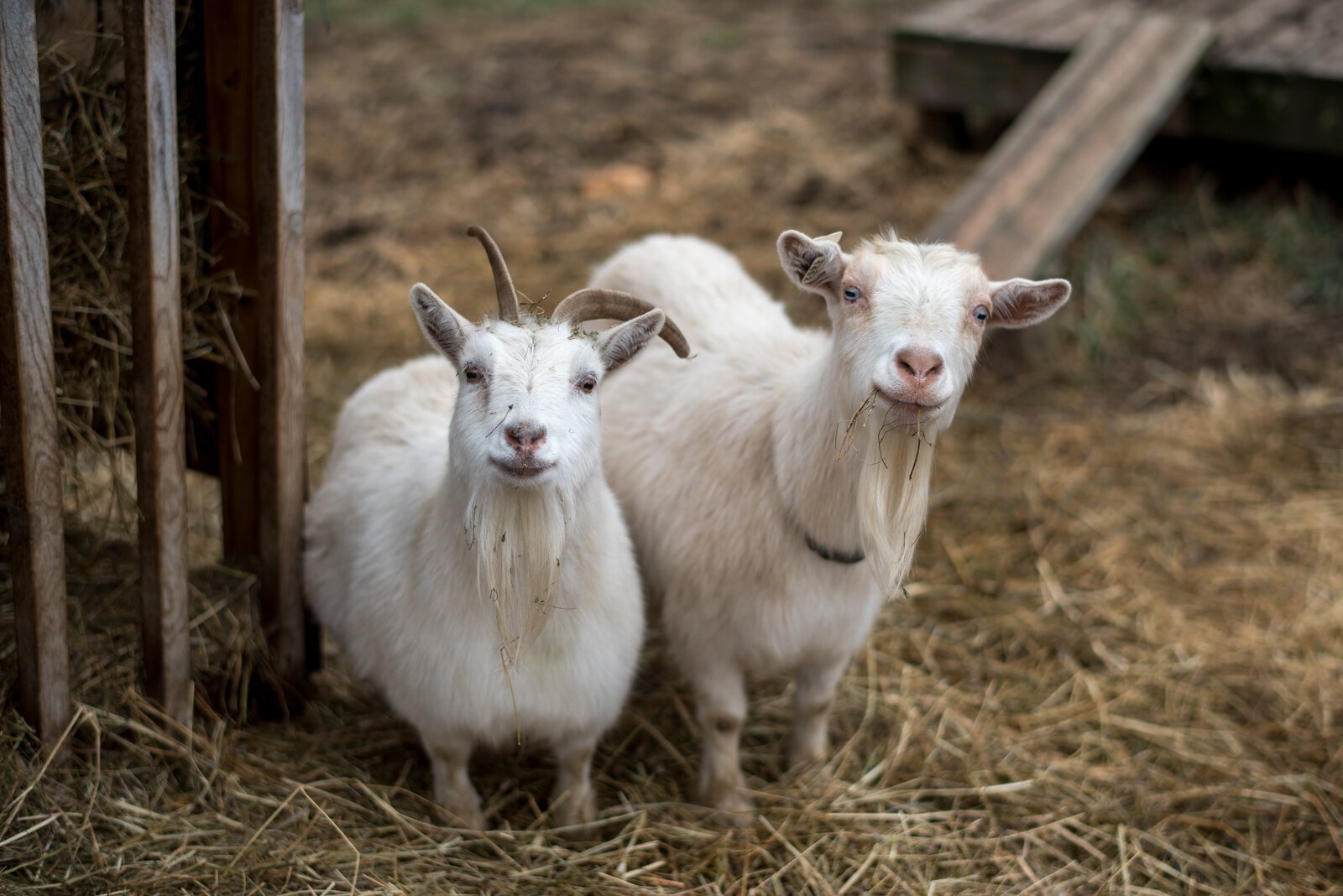
Teams of residents, participants, and volunteers skirt and wash the wool and alpaca fiber, operate the looms and carding machines and make wool dryer balls, cat toys, banners, potholders, wool scarves, bags, and other products in a supportive and safe atmosphere that are then sold to the public.
SHALOM Farm Days, which usually take place around September and October every year, tend to be the largest event the organization puts on for the public. Volunteers from church partners and other organizations help residents oversee the activities. The two-day event can bring in around 1,200 people, expanding with each year. The family-friendly event allows visitors to interact with the farm animals, and enjoy live music, food, hayrides, crafts, SHALOM Woolery demonstrations, a bounce house and yard games, and more.
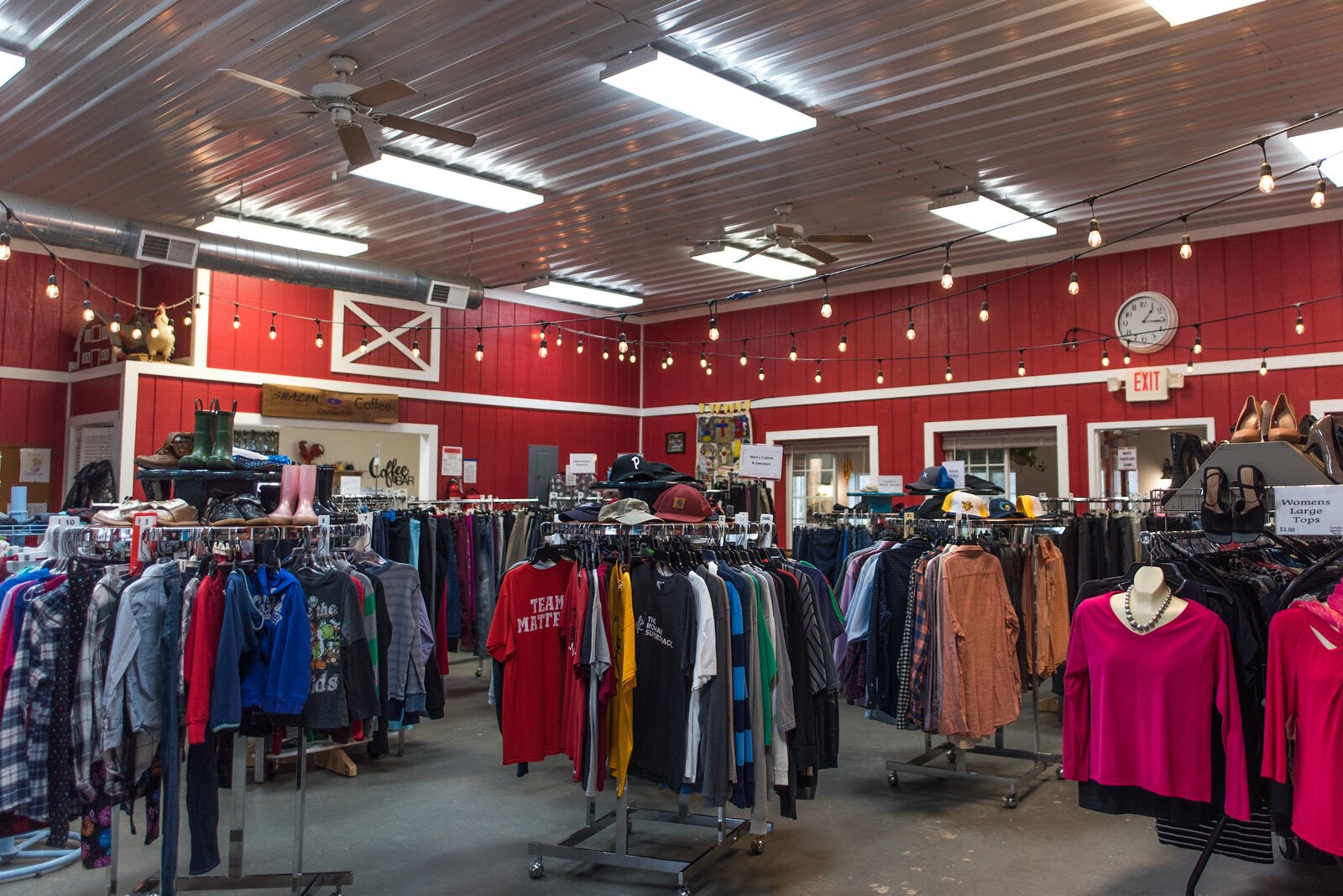
Another popular annual event is the Christmas Bazaar, held every December to sell ornaments made from wood and wool, and other holiday items made by residents and participants.
The value of volunteers and the pride of work well done
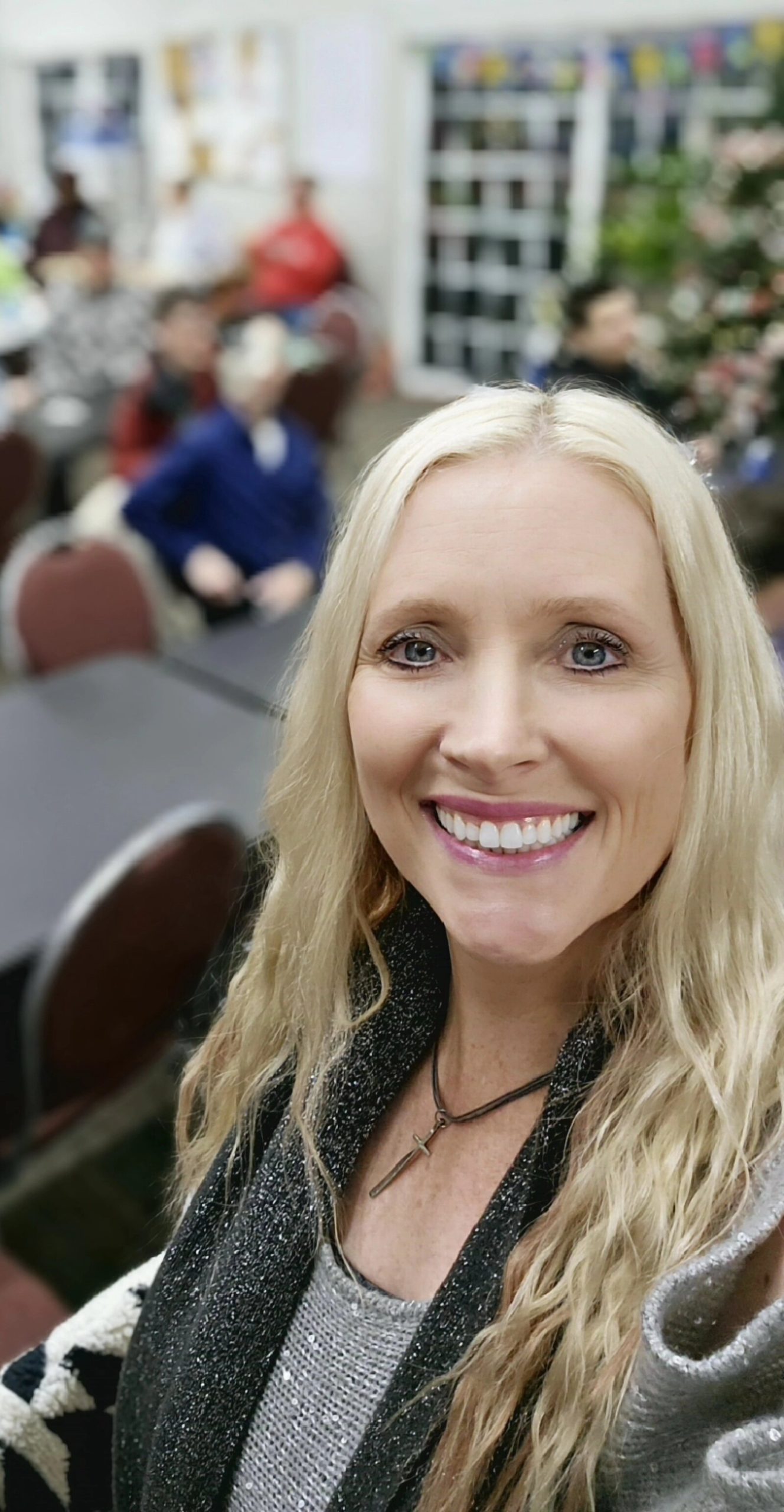
“No way that we could do any of this without our many volunteers,” Stevens says. “We have about 40 or 50 now and can always use more. Some turn into coaches — we have 11 coaches right now so that we can have one coach working with groups of five or six adults.”
“I began here as a volunteer,” says Sheila Brown. She is now a coach but since June 2023, also a community liaison for SHALOM. She attests that volunteering is a way to give but also to receive.
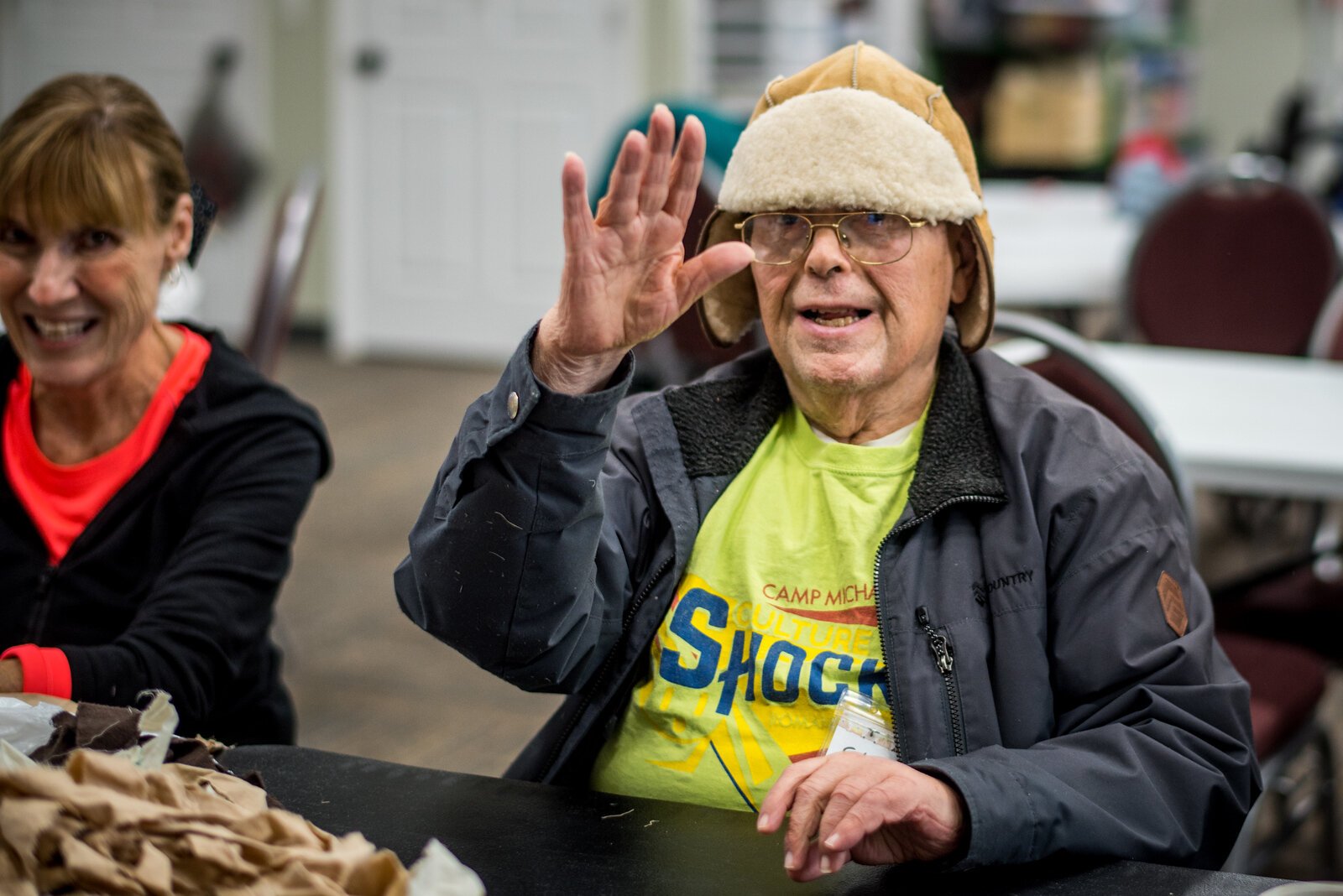
“My love for SHALOM began in the 1990s when I worshiped alongside SHALOM residents at Haven Church,” Brown says. “When the Connection Depot Thrift Store opened, I started as a volunteer. I prayed God would lead me to where my skills and experience could best be used, and I was hoping that He would lead me to SHALOM. And He did. There’s a lot of grace here. When my own father died, SHALOM became my supportive family.”
Volunteers help in all aspects of the SHALOM Network. SHALOM participants, residents, and staff gather with volunteers for community meals and worship.
Stevens reminds visitors, however, that much of the work of SHALOM is done by residents and participants, keeping in mind the purpose of SHALOM — to build up people, enrich their lives, and help them grow in their faith. Much of that is accomplished through the work they do on the premises so that they might have a productive lifestyle, exposed to educational opportunities and opportunities so that they might lead independent lives.
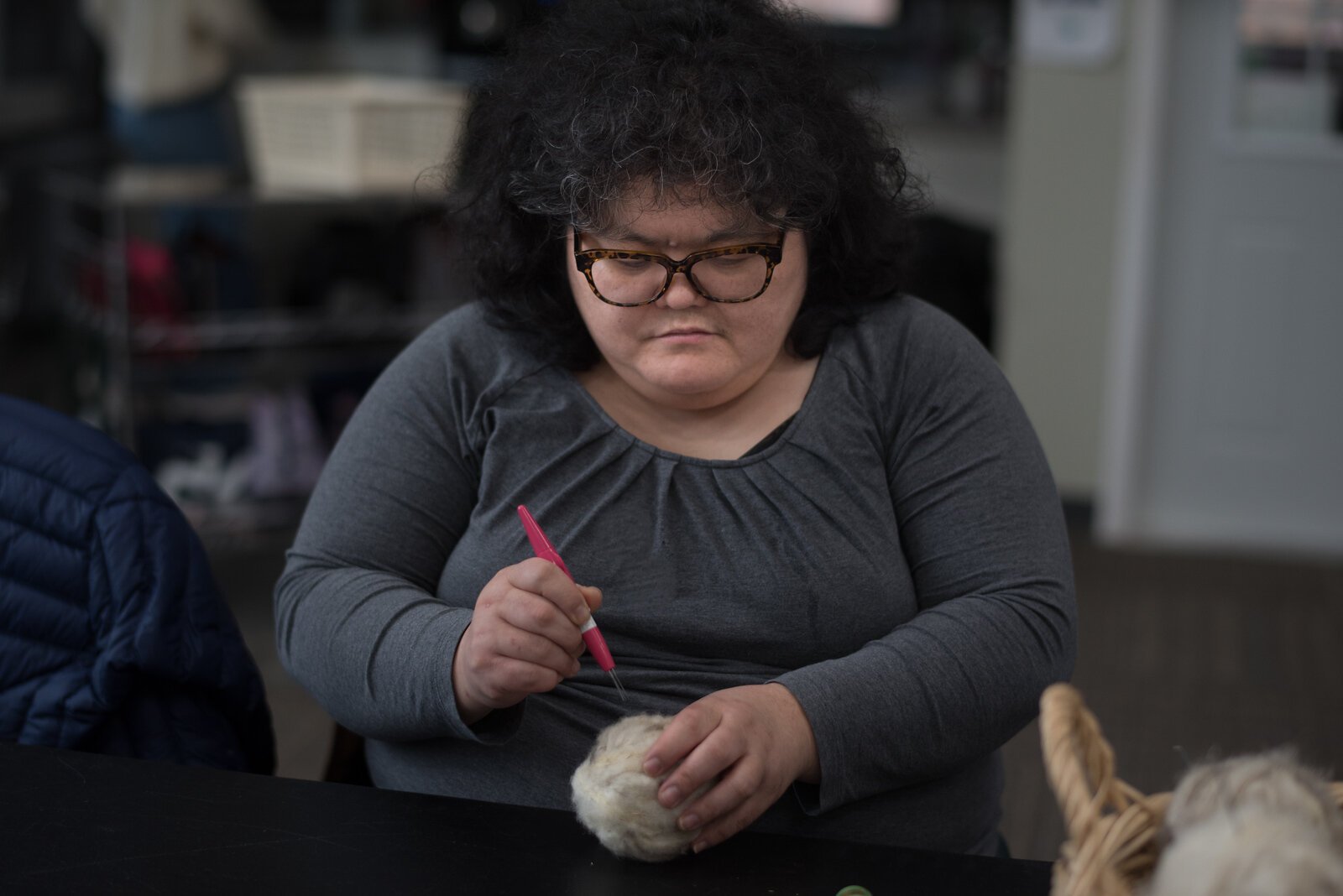
“Like Joan here,” Stevens smiles as a young woman at the SHALOM Woolery sits down beside her, smiling widely. “I moved out of the family home when I was 17, and I started my own adult foster home near here. Joan was one of my original six residents. We’re practically blood now.”
“I want to try to be independent,” Joan nods, returning Stevens’ smile with her own.
“And she has been successful,” Stevens says. “Her mom was nervous about it, as Joan sometimes has seizures, but she’s been doing great.”
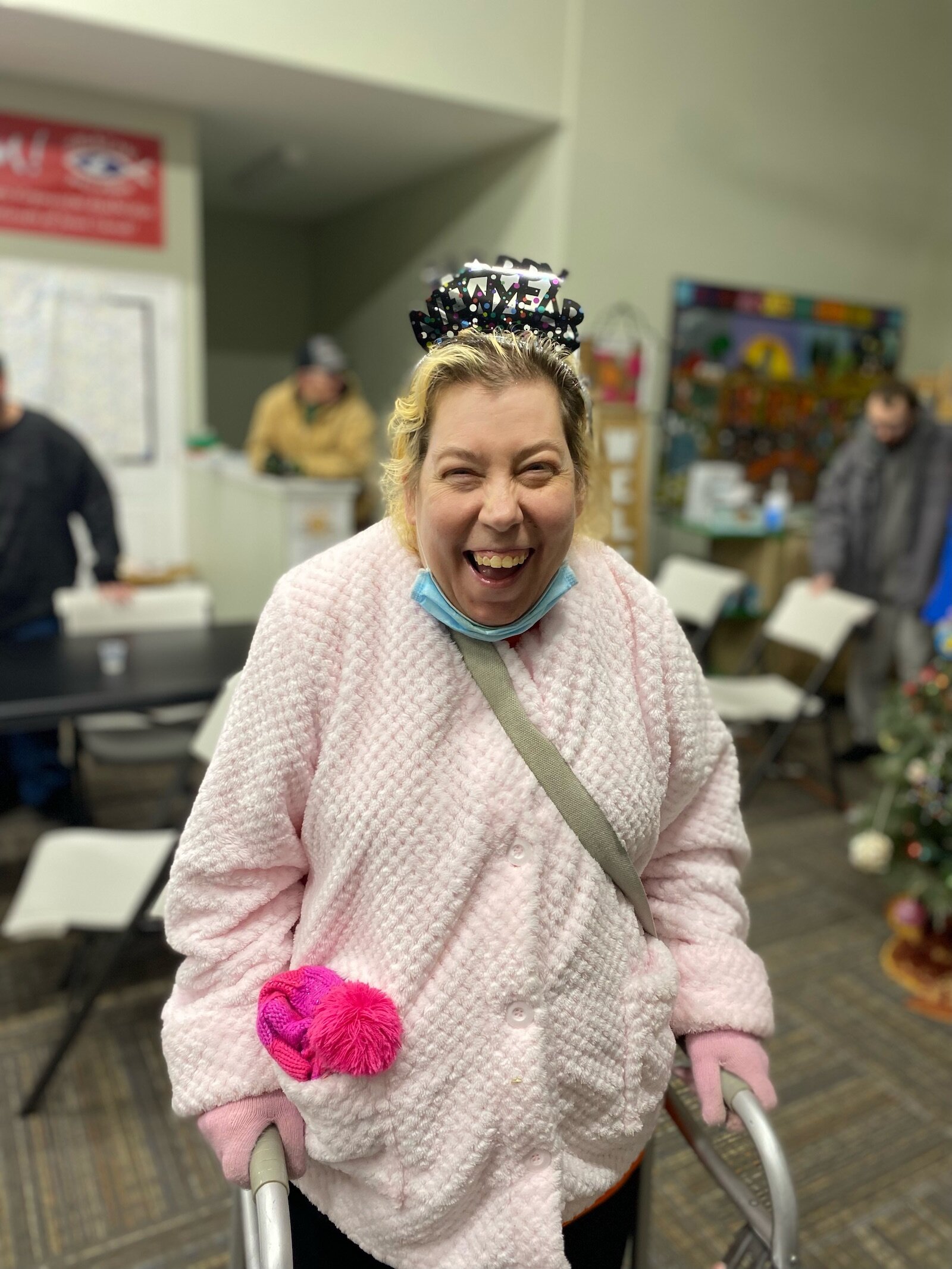
It is around that time that the day of activity at the SHALOM Woolery draws to a conclusion. As it does, buses and other transport vehicles line up outside the building to take residents and participants back to their homes.
Before they do, one more tradition unfolds. Each participant takes a turn to share aloud his or her accomplishments of the day. On this day, one resident recounts that they gathered chicken eggs. Another holds up a Christmas ornament, complete with electric lights. Yet another tells of a busy day cleaning stalls, and still another, of working at the store. After each recitation, the room erupts in applause and cheers. A grin of pride spreads across each face at the acknowledgment.
Keeping a watchful eye
At the Disability Network of Southwest Michigan, Allison Leece, communications and outreach coordinator, takes note of the organizations and nonprofits in the region that work with persons with developmental disabilities. The Disability Network celebrates disability as a natural part of the human condition, and its programs support people of all ages and all types of disabilities, providing a safe space and resources for independent living.
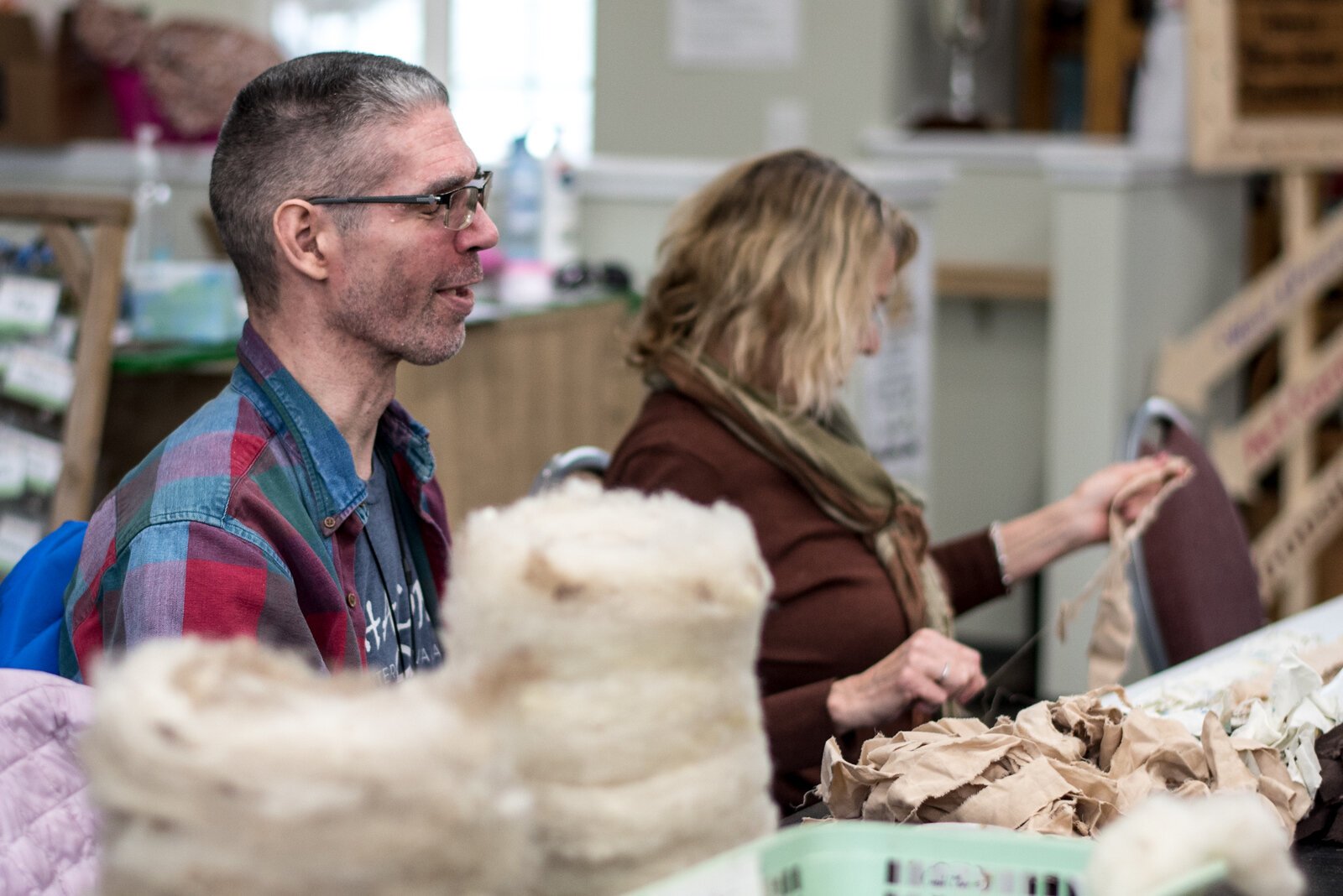
“Looking at SHALOM, we like what we see,” Leece says. “Adult day care centers can sometimes be stagnant, with little activity going on, but SHALOM brings value through accomplishment and the work that participants do.”
While some such centers tend to segregate participants from the public, Leece says she is encouraged by the connections participants at SHALOM make with peers and others, disabled or not. One is considered disabled only after one encounters a barrier, she says, and the purpose of the Disability Network is to remove such barriers. She sees the same mission in SHALOM.
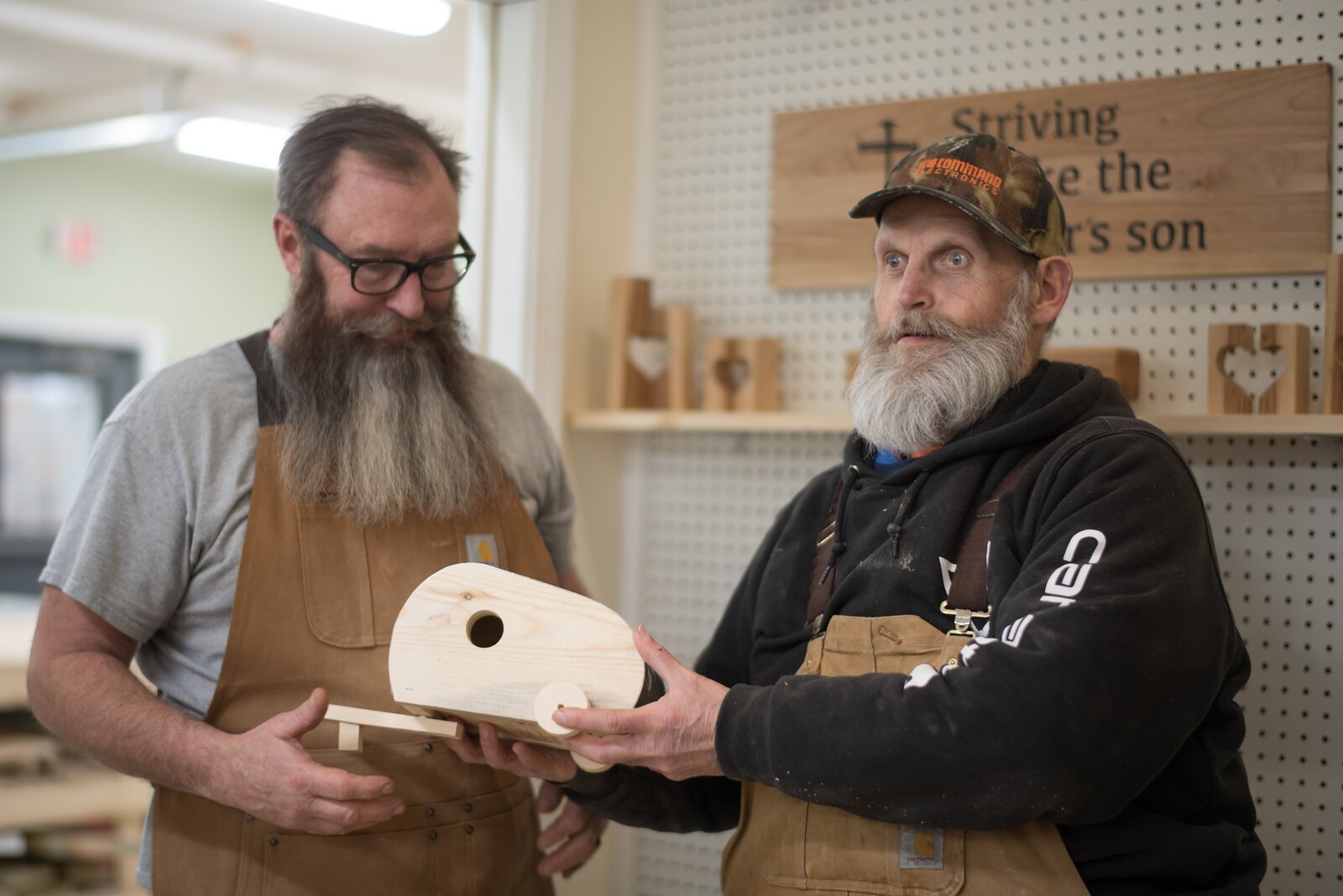
“We love to see the self-determined homes,” she says. “Self-determination gives people choices about how they want to live their own lives. There is dignity in making those choices, even if sometimes it seems risky. And the hobbies and recreational activities SHALOM participants pursue — that’s meaningful, that gives one a sense of joy. SHALOM has created a supportive community while allowing people to be independent.”
Enabling SHALOM to do their work
Volunteers are crucial to the work of SHALOM, which is always in need of more — but no less important are the donations that keep the nonprofit operating. Churches, grants, civic organizations, and individuals fund SHALOM with their donations, bolstering the income coming from sales at the thrift shop, coffee shop, and elsewhere on the site.
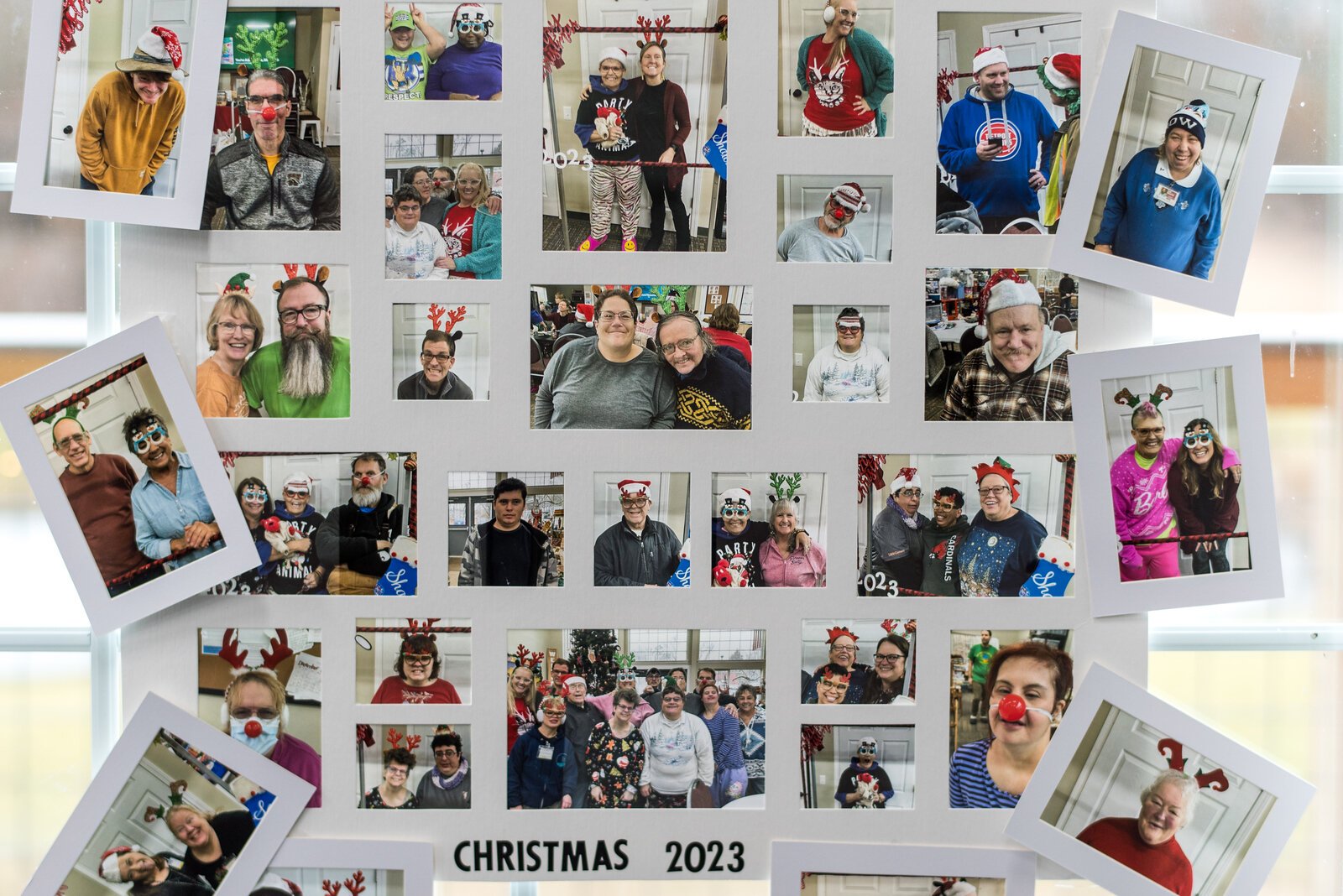
Glen Collison passed away in 2012, and Sara Collison in 2021, leaving SHALOM as a legacy of their faith and belief in service to their fellow man. It is said that Sara Collison died at her home with a bible in her lap. Her daughter says she never strayed from her path of bringing peace and harmony to others.
To learn more about SHALOM, check their Facebook page, call 269.382.3840, or email shalomkazoo@aol.com A book, “What Is In Your Hand? A Journey Toward Shalom,” about SHALOM’s origin and mission has just been released and is available through Amazon and Barnes & Nobles.
